PwC China:
Telling the Emotional Story
In the summer of 2019, I interned at PwC Shanghai. My team was Priority Services and our primary product was You Plus Anchor, an early-career training camp for university students that spearheaded PwC's venture into the business education sector.
CHALLENGE
Success rate of recruitment events were stagnant. PwC was having difficulty communicating to college students the value of the You Plus Program — a program built on hard-to-grasp HR and consulting concepts derived from research into macro-economic trends and future labor markets.
INSIGHT
Students don't buy skills or classes — they buy future versions of themselves. Through analysis of student feedback, we realized that our biggest experienced value proposition was not any consulting technique, but personal empowerment. To quote from one interview: "After 20 days, you suddenly realize, you are braver."
EXECUTION
Based on student and faculty interviews, we created a 5-min film about emotional transformation — a story of students, uncertain about their future and seemingly rejected by the professional world, meeting mentors and friends who inspire them to transform themselves.
I scripted, revised, and ultimately directed, shot, and edited the final film in 30 days, with a near-zero budget and no ability to rent equipment nor crew (oof).
new audience, new strategy
REVIEWING EXISTING MARKETING
I began by researching our existing presence across WeChat, Weibo, and Chinese Quora.
What gap could the video uniquely address?
I discovered that our marketing sounded much like our firm — sophisticated, intellectual, well-suited to attract Fortune 500 clients.
But to appeal to Anchor's target audience — college students and recent grads — we needed something different.
We focused on the big picture.
emphasis on macro-economic trends, future labor markets, how PwC's venture created business and social value.
We spoke in business nomenclature.
the language of management, HR, talent development, not college students.
But one video gave me pause.
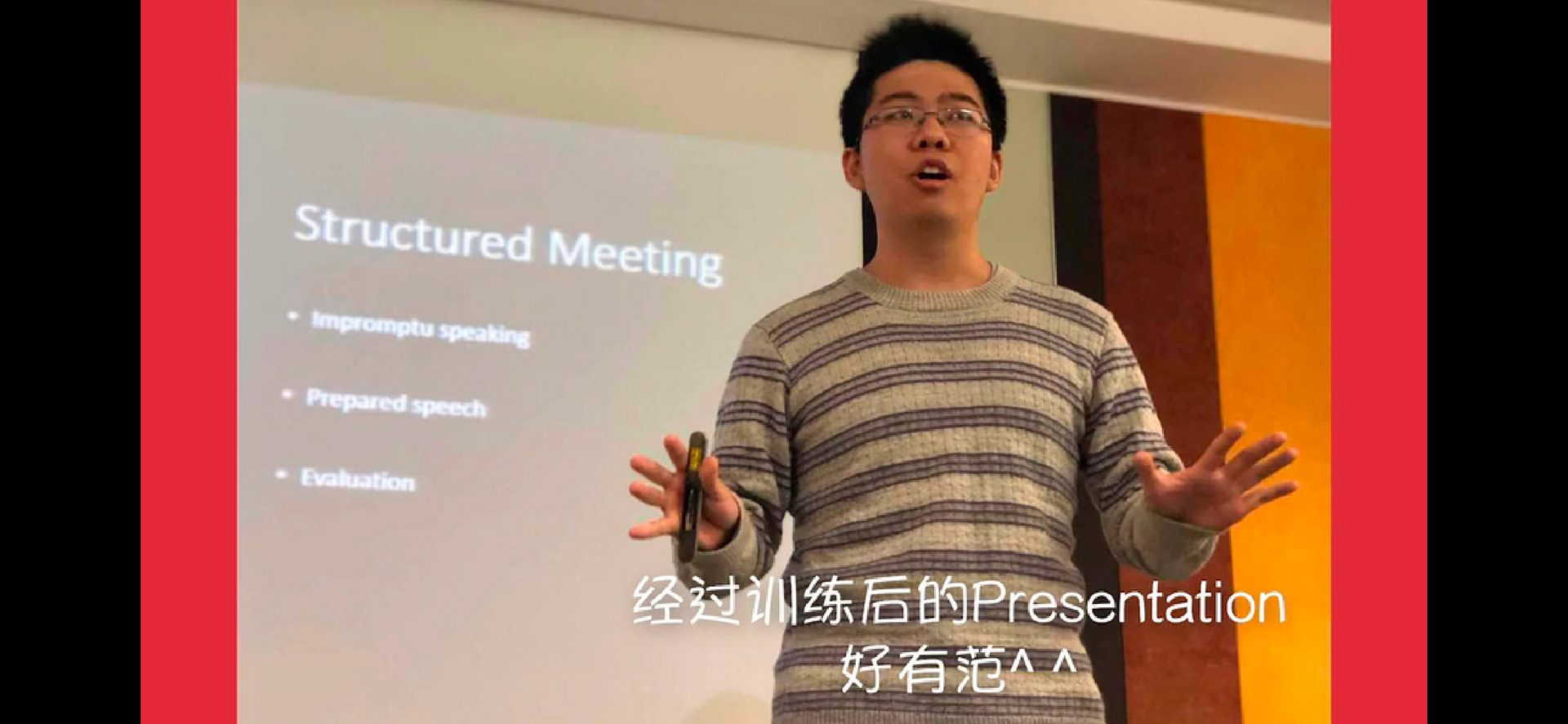
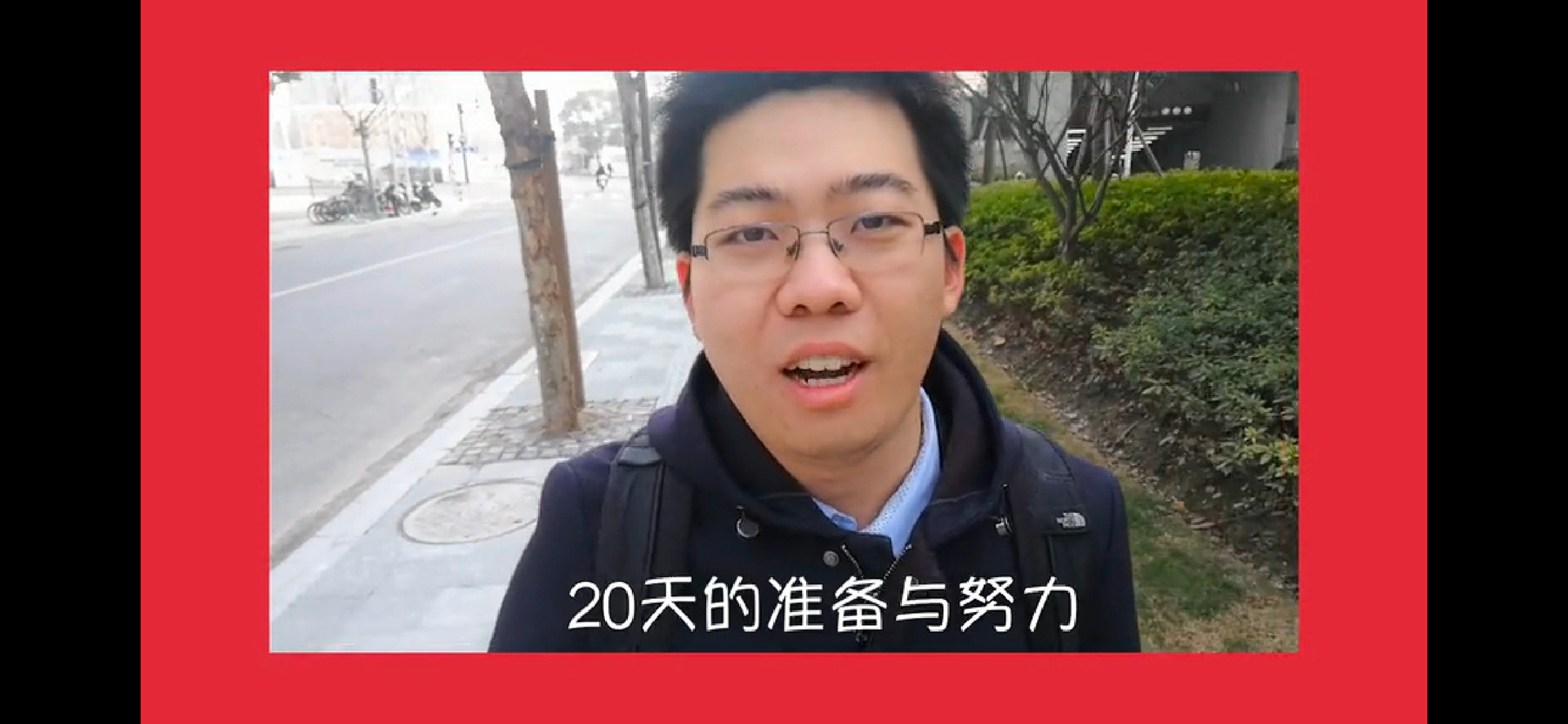
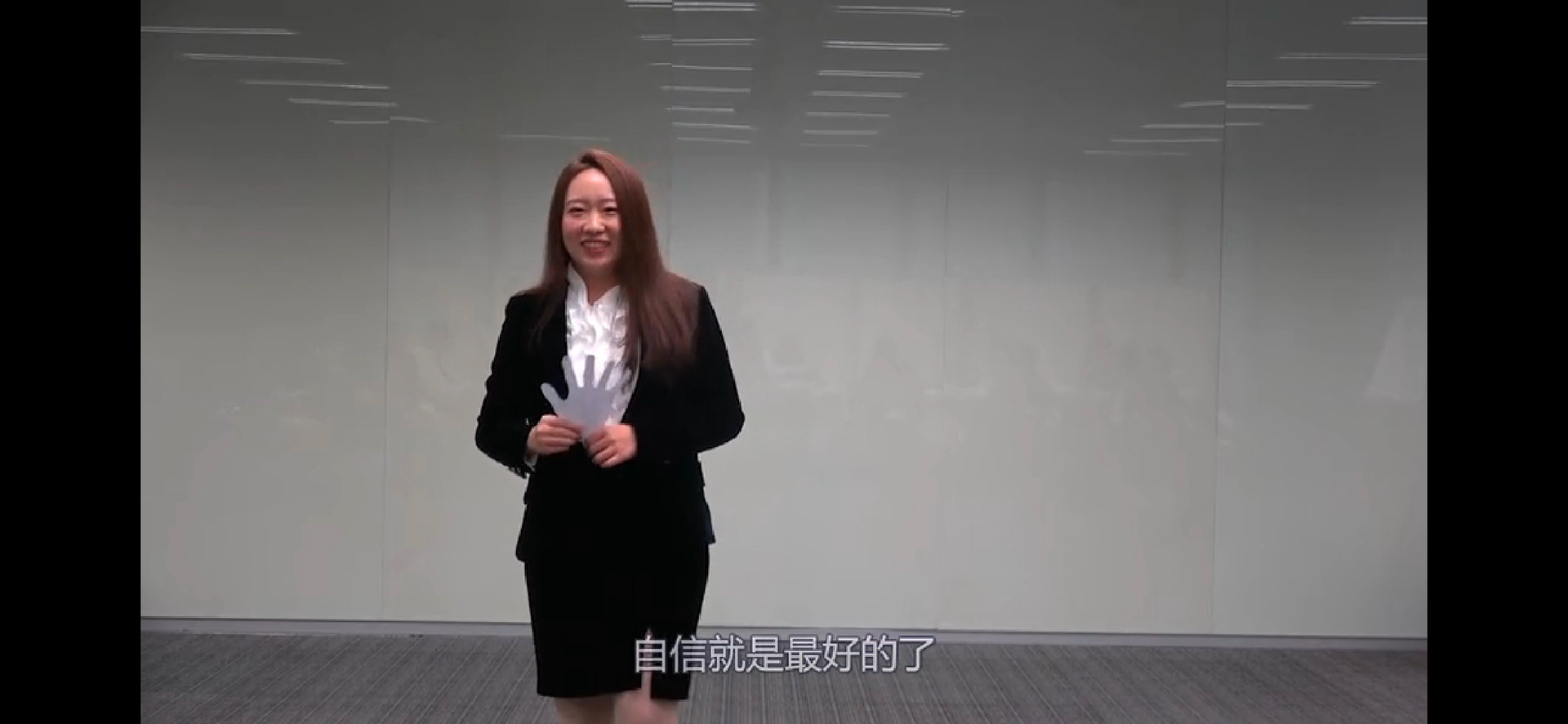
Every Anchor cohort has a vlog. A visual diary of sorts, these videos are made by students and shown for fun at their graduation ceremonies.
There was something different about how the students described Anchor and how we marketed it. We spoke of it as a professional service. They spoke of it as a personal journey. I noticed a few keywords recurring:
Self-Discovery. Confidence. Inspiration.
OUR INSIGHT
Students don't buy classes. They buy future versions of themselves.
to quote from one interview
"AFTER 20 DAYS, YOU SUDDENLY REALIZE
YOU'RE BRAVER."
Informal conversations with students revealed that the biggest reason they enrolled in Anchor is a desire to improve themselves. Their biggest takeaway at graduation? Empowerment.
With that insight, I set out to tell a story of emotional transformation: of students, uncertain about their future and seemingly rejected by the professional world, meeting mentors and friends who inspire them to transform themselves.
1.
Tell the emotional story, not the technical specs.
2.
Establish tone — PwC as Mentor
3.
Sell not the product, but a kind of person: Professional, Driven, Assured
one person, thirty days
PRODUCTION
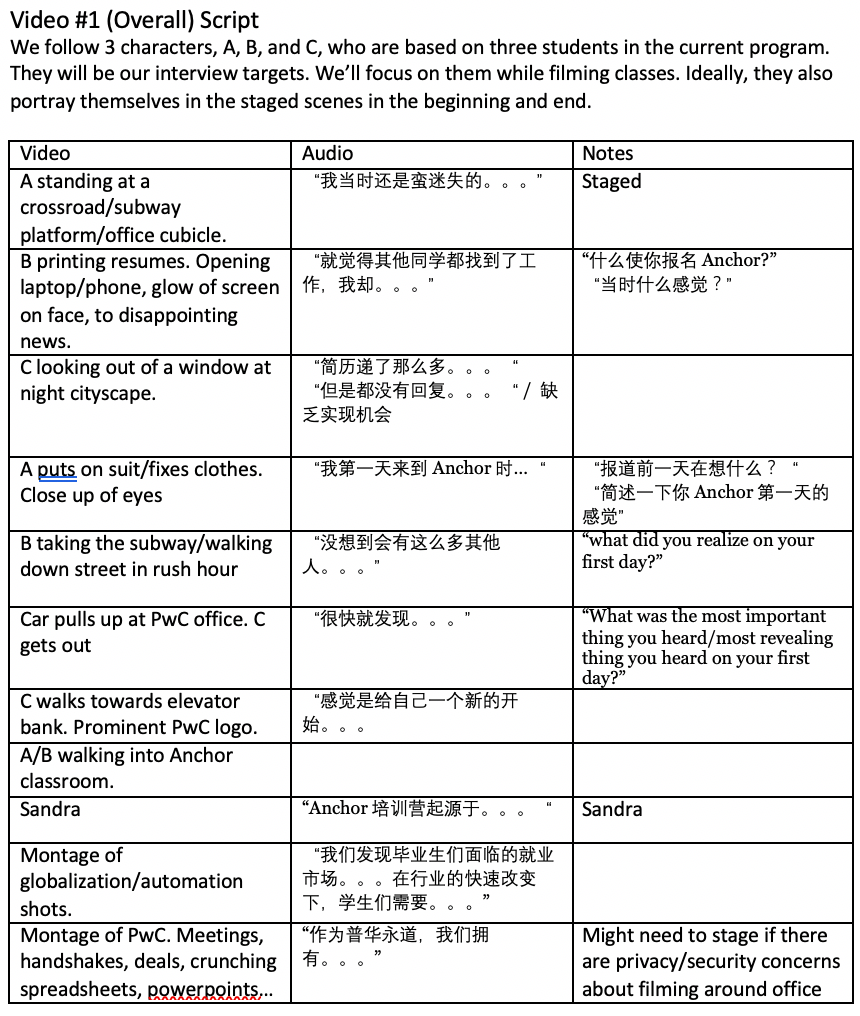
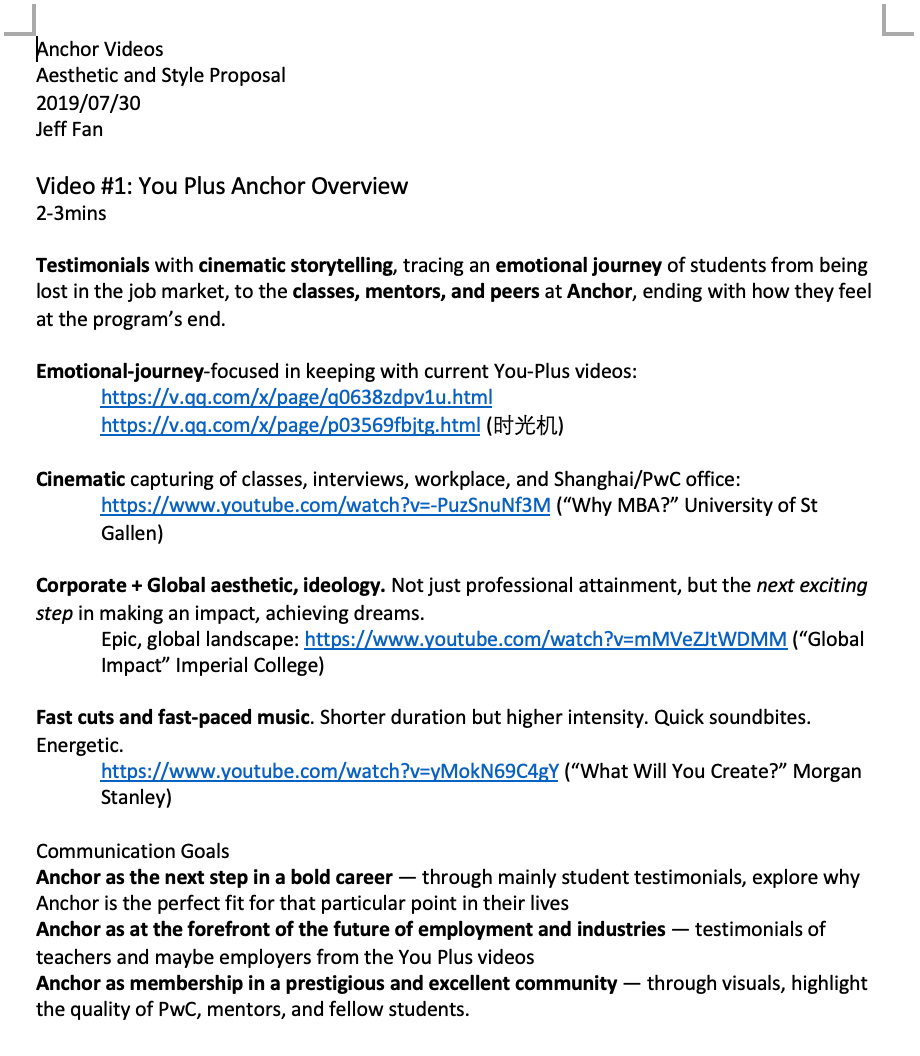
With only 30 days before our first big promo event, we hit the ground running.
After meeting on strategy, I created AV scripts and compiled style references to help upper management visualize the final product.
By Day 3, we were shooting. I wanted to ground the piece in student testimonies.
In a conversation format, I interviewed students and slowly teased out their emotional arcs.

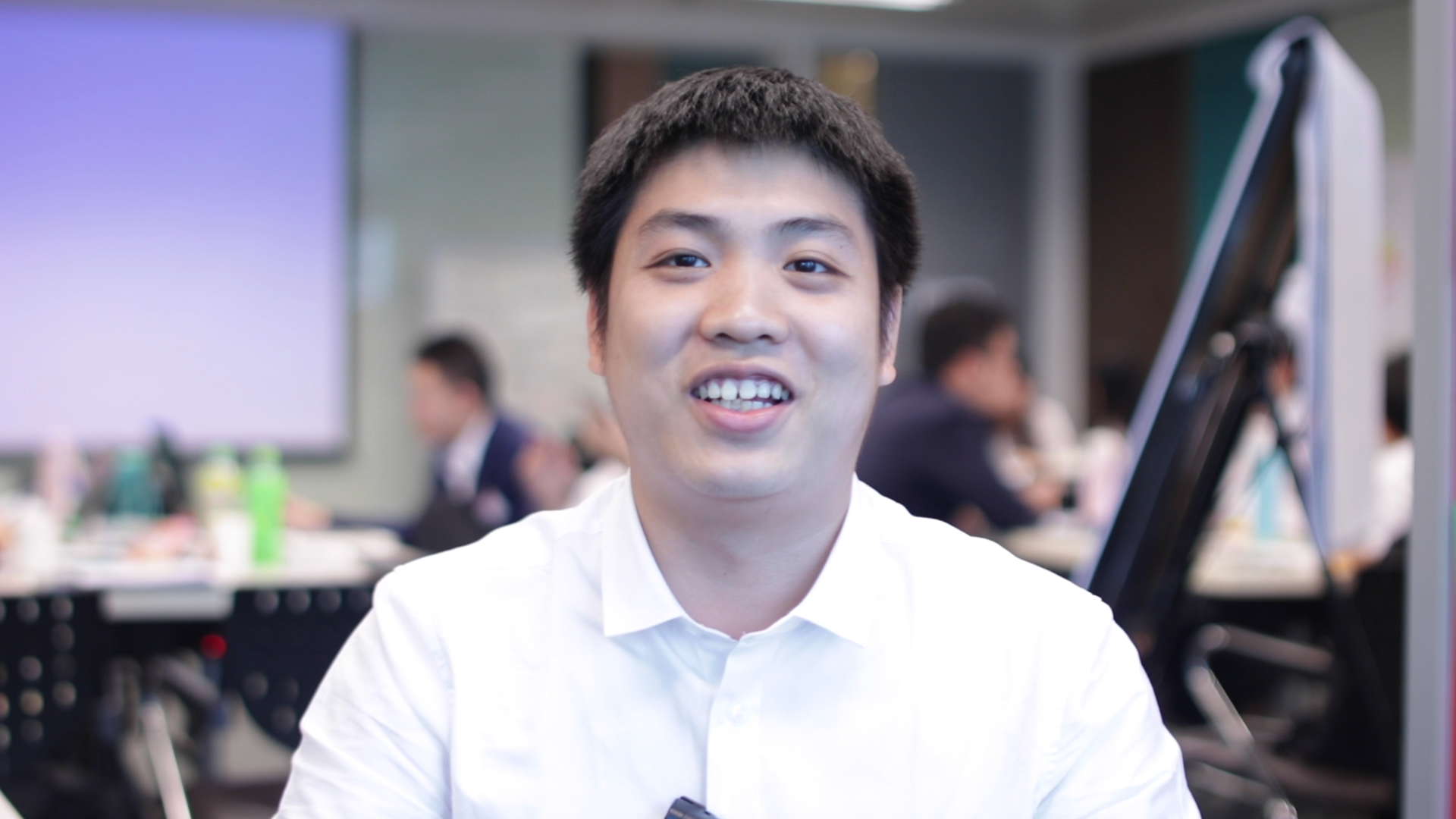

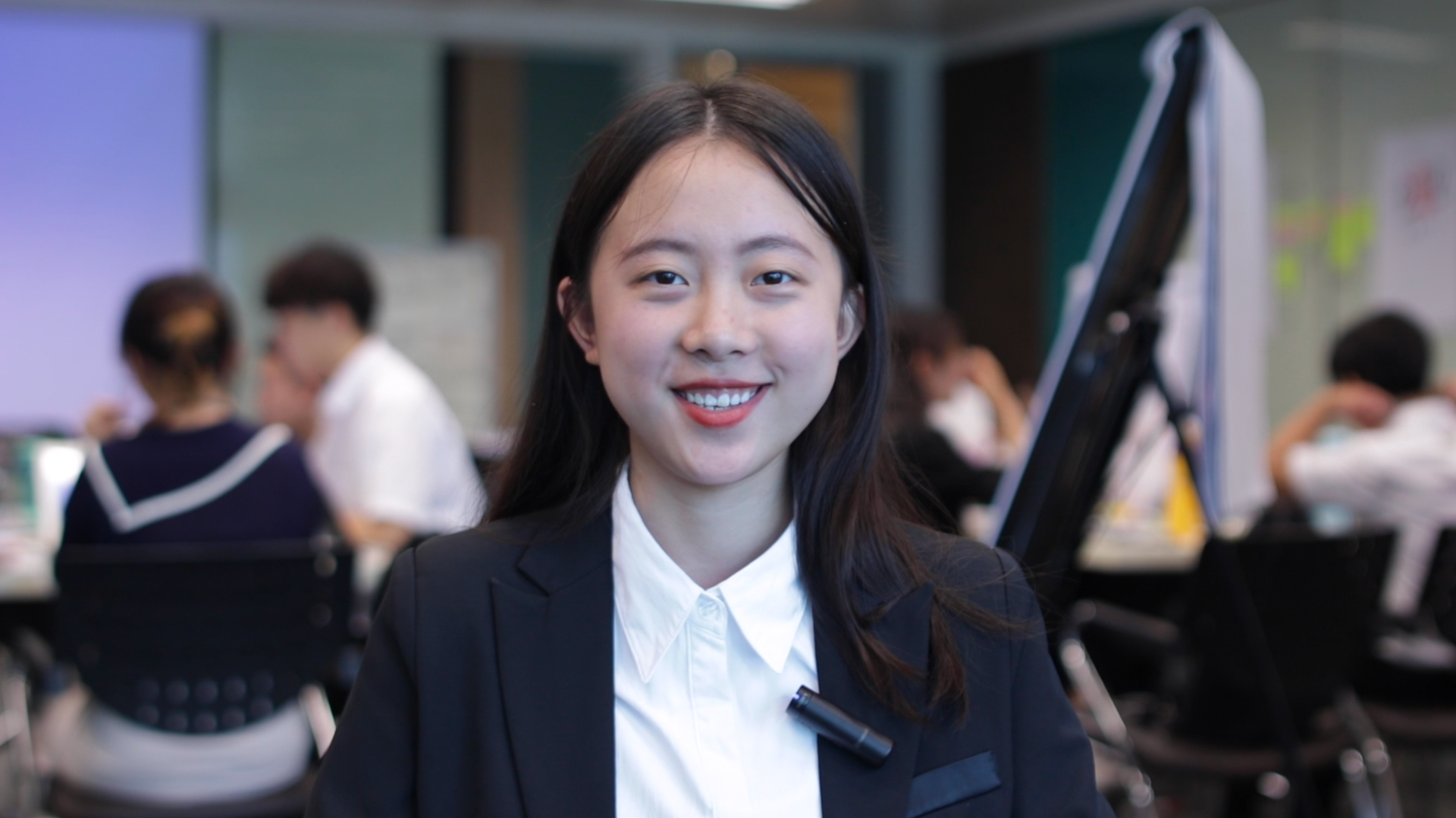
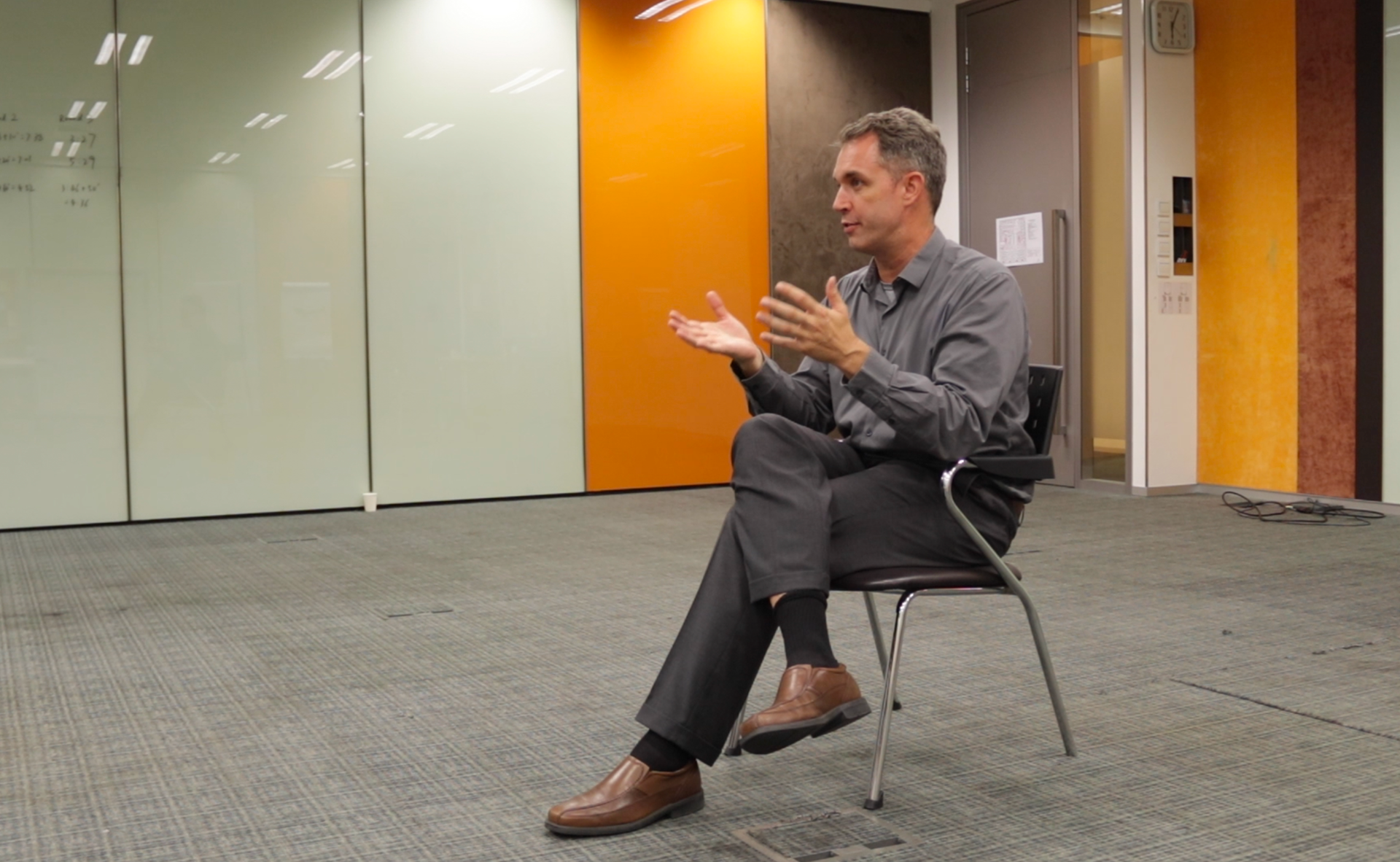
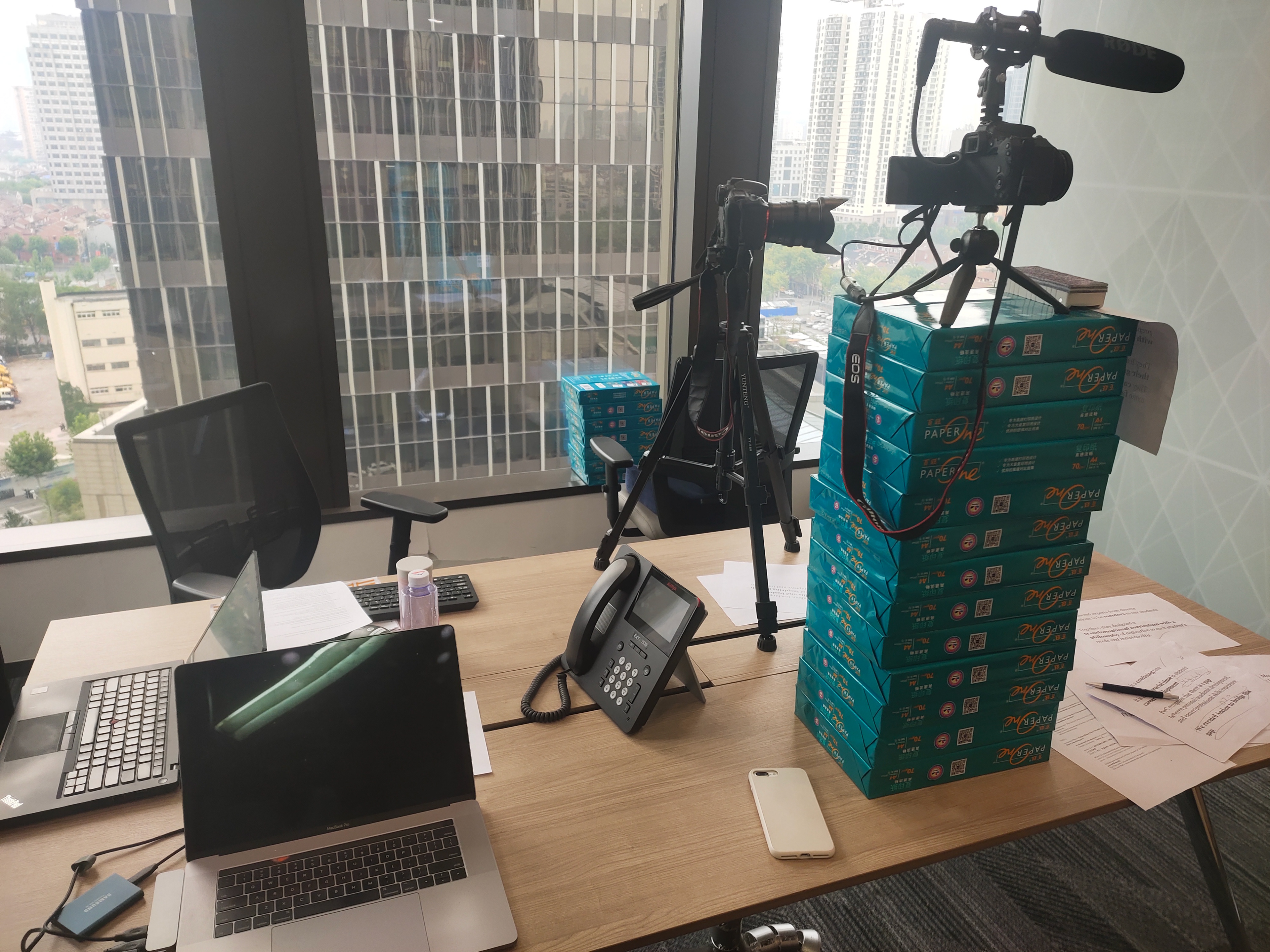
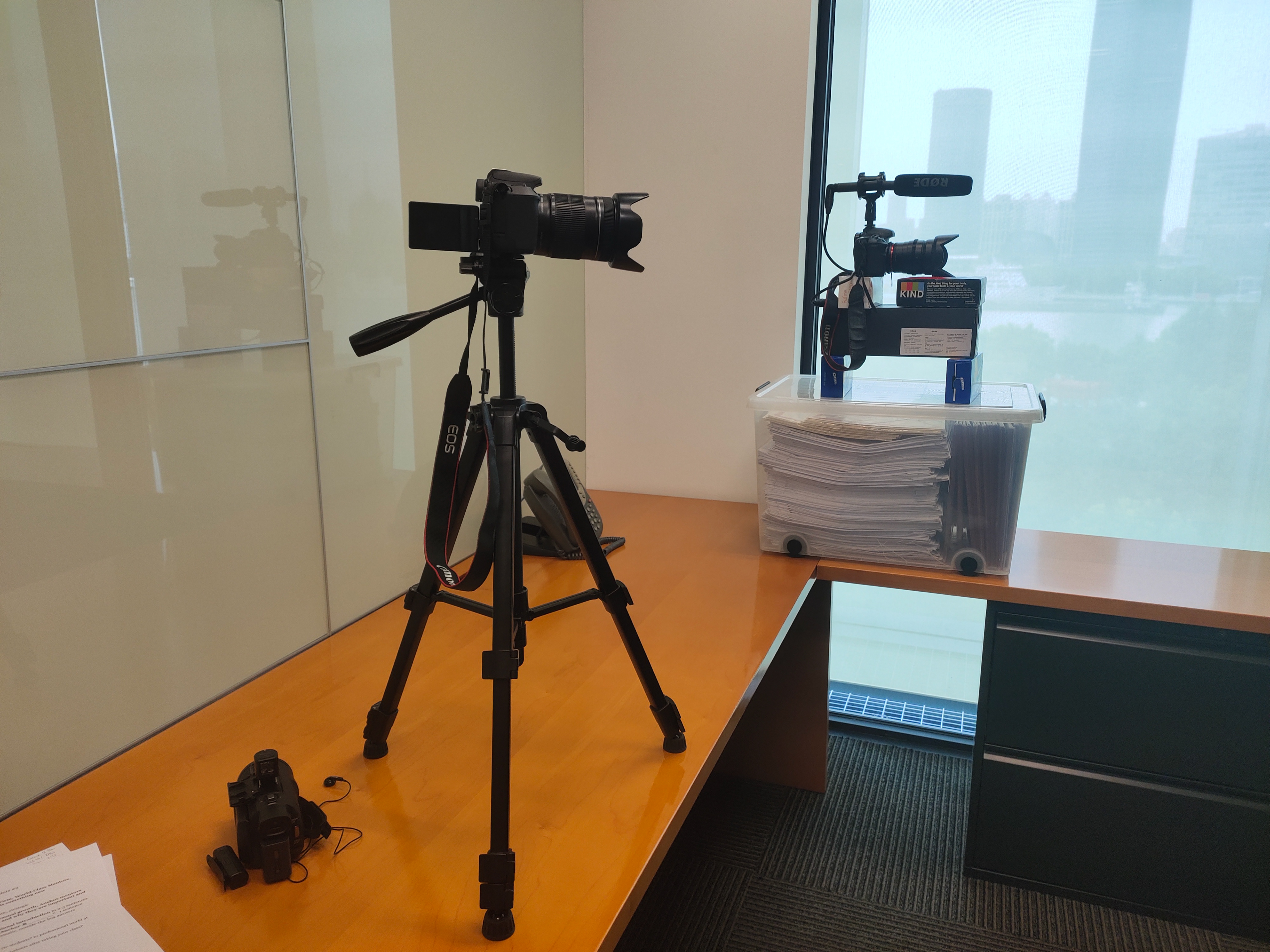
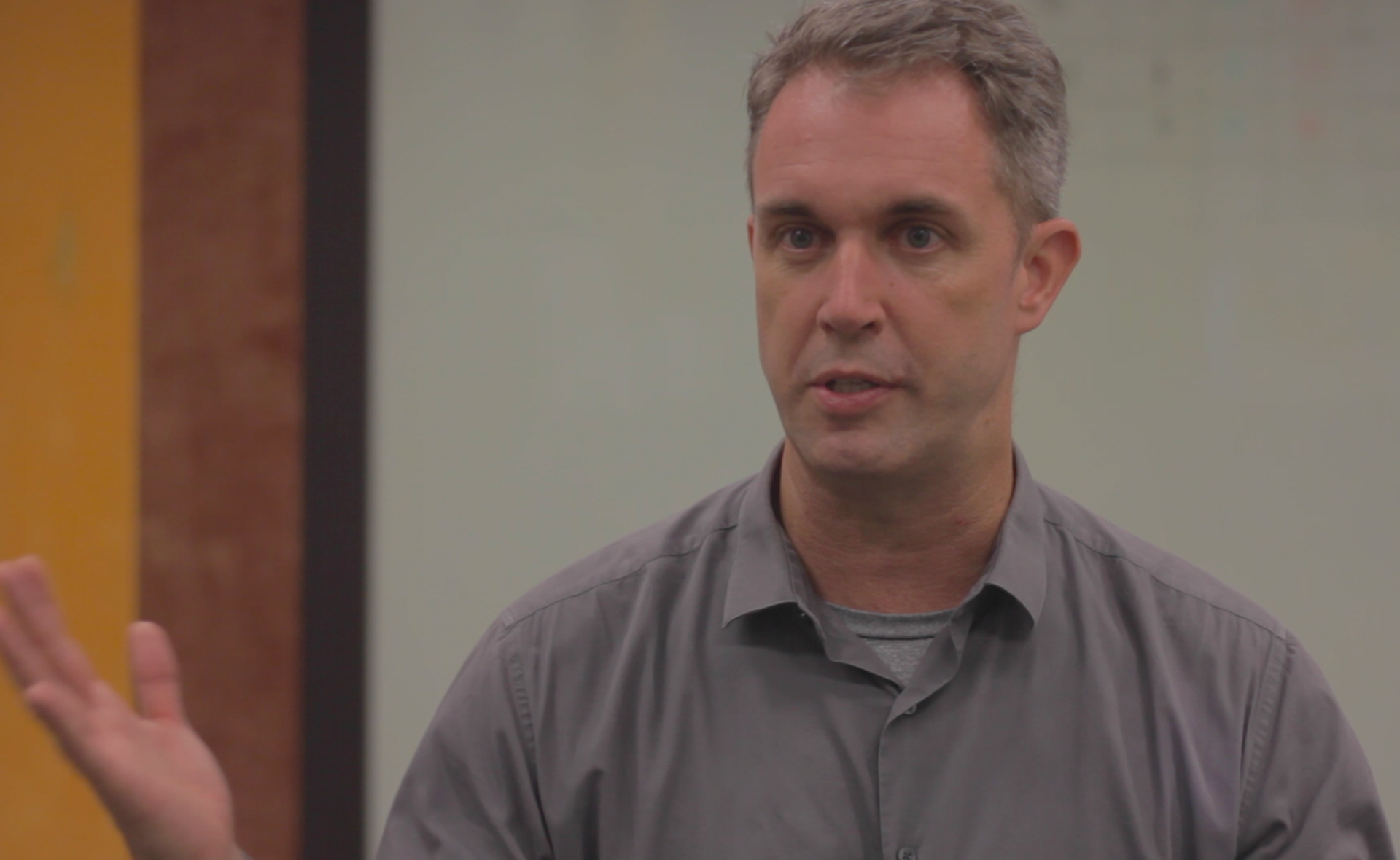
I was operating a 3-DSLR set-up by myself.
We filed requests for high-end equipment on the first day, but internal expensing mechanisms would not finish until (ironically) the day we wrapped.
I intercepted partners to ask for their acceptance and made friends with the equipment room manager, but ultimately no one could overpower bureaucracy.
Suffice to say, some of the rigging got...creative.
For management and mentors, I drafted their talking points to save their time and to correspond with student testimonies.
To minimize back-and-forth in revisions, I researched their past interviews and media appearances, and drew on language they already used.
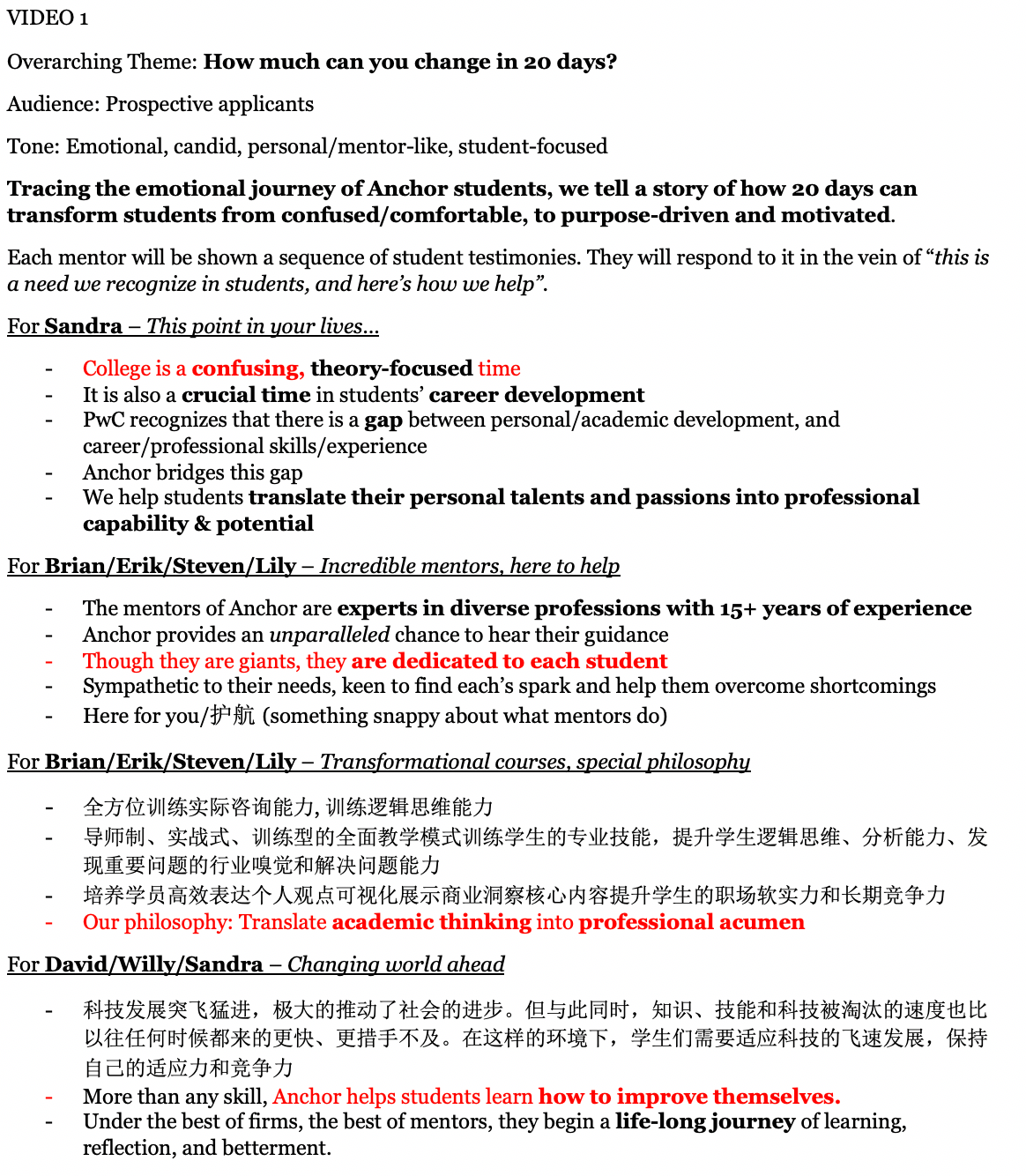
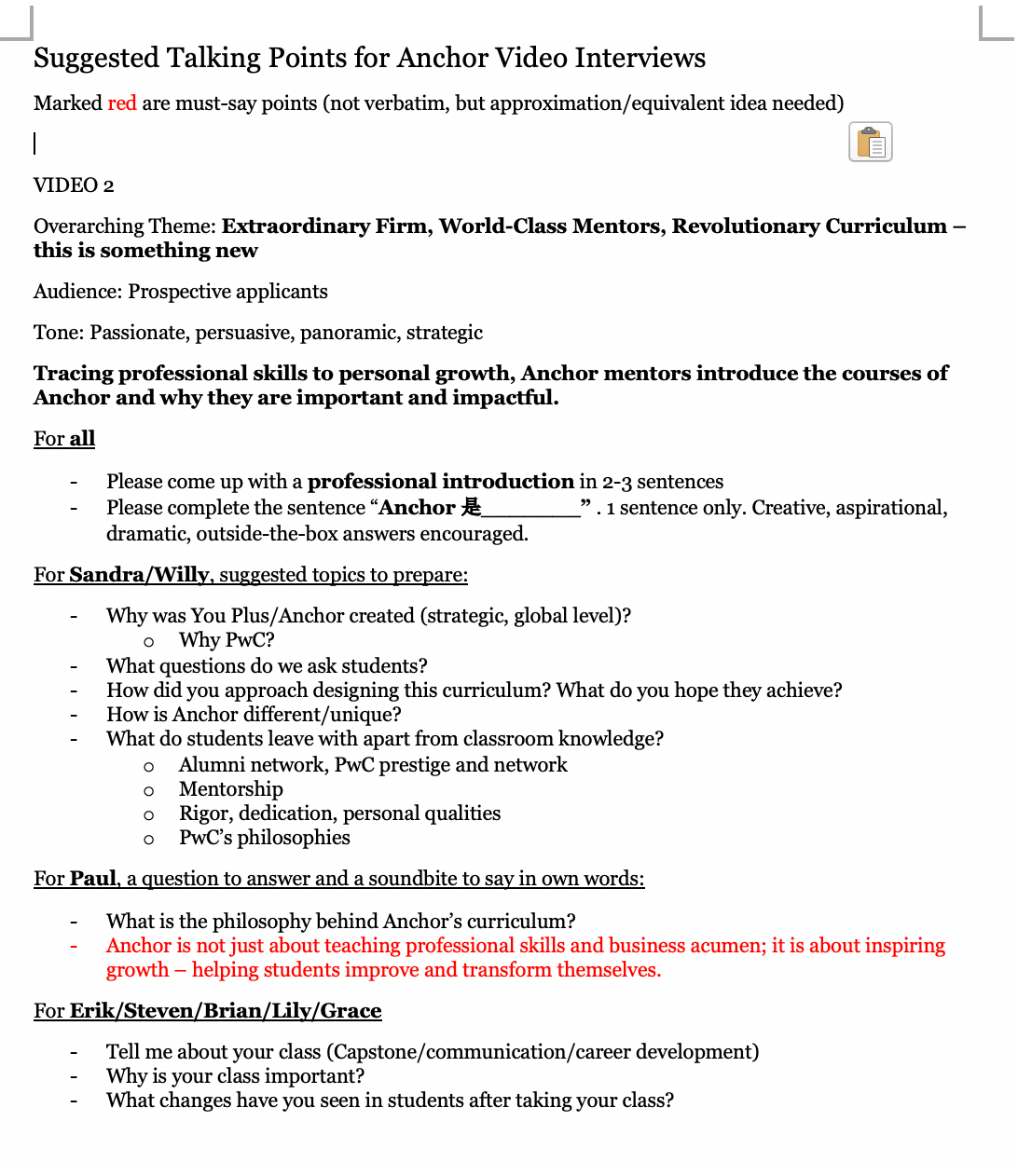
Final draft being reviewed by the bosses...
// RESULTS
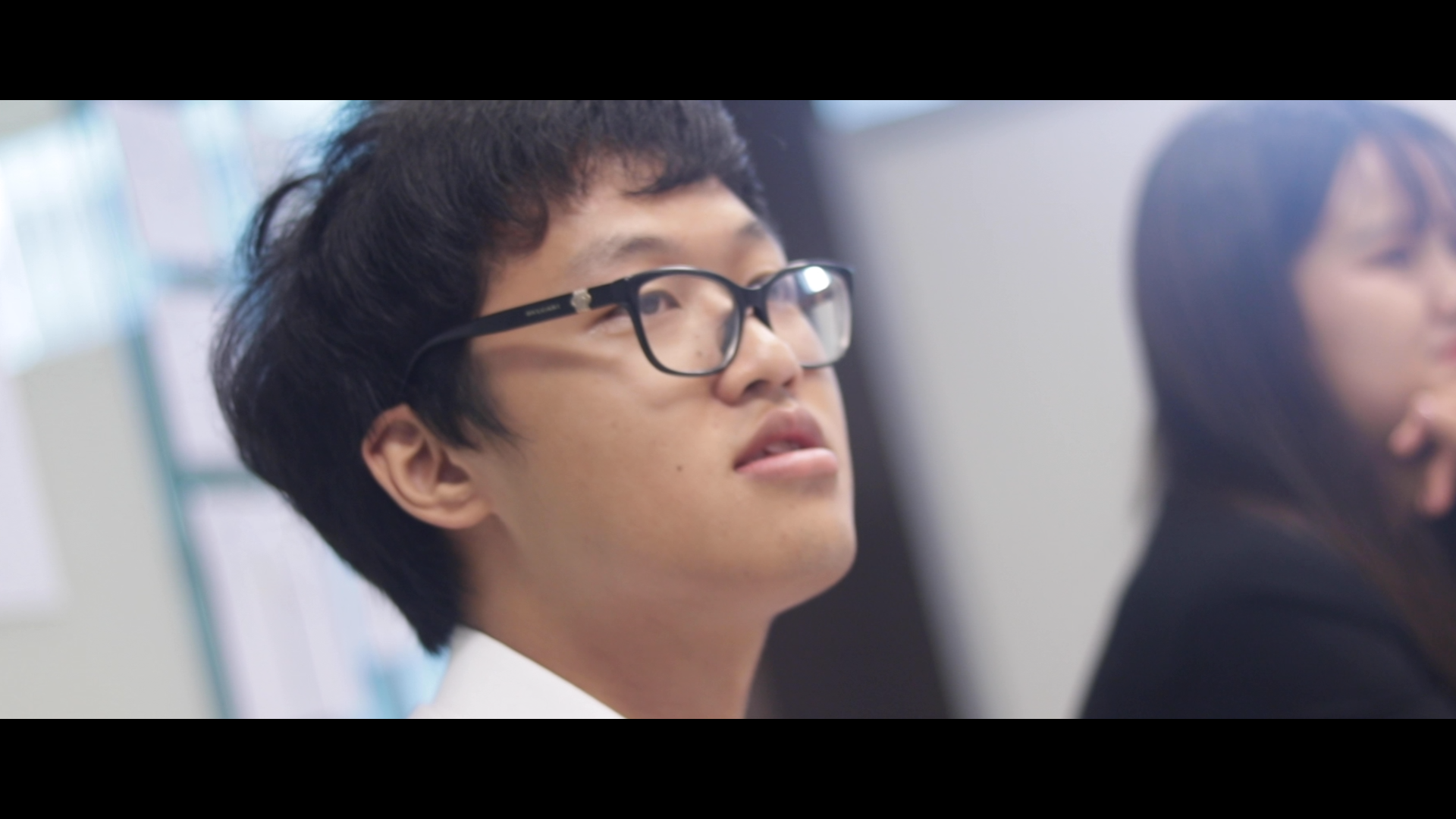
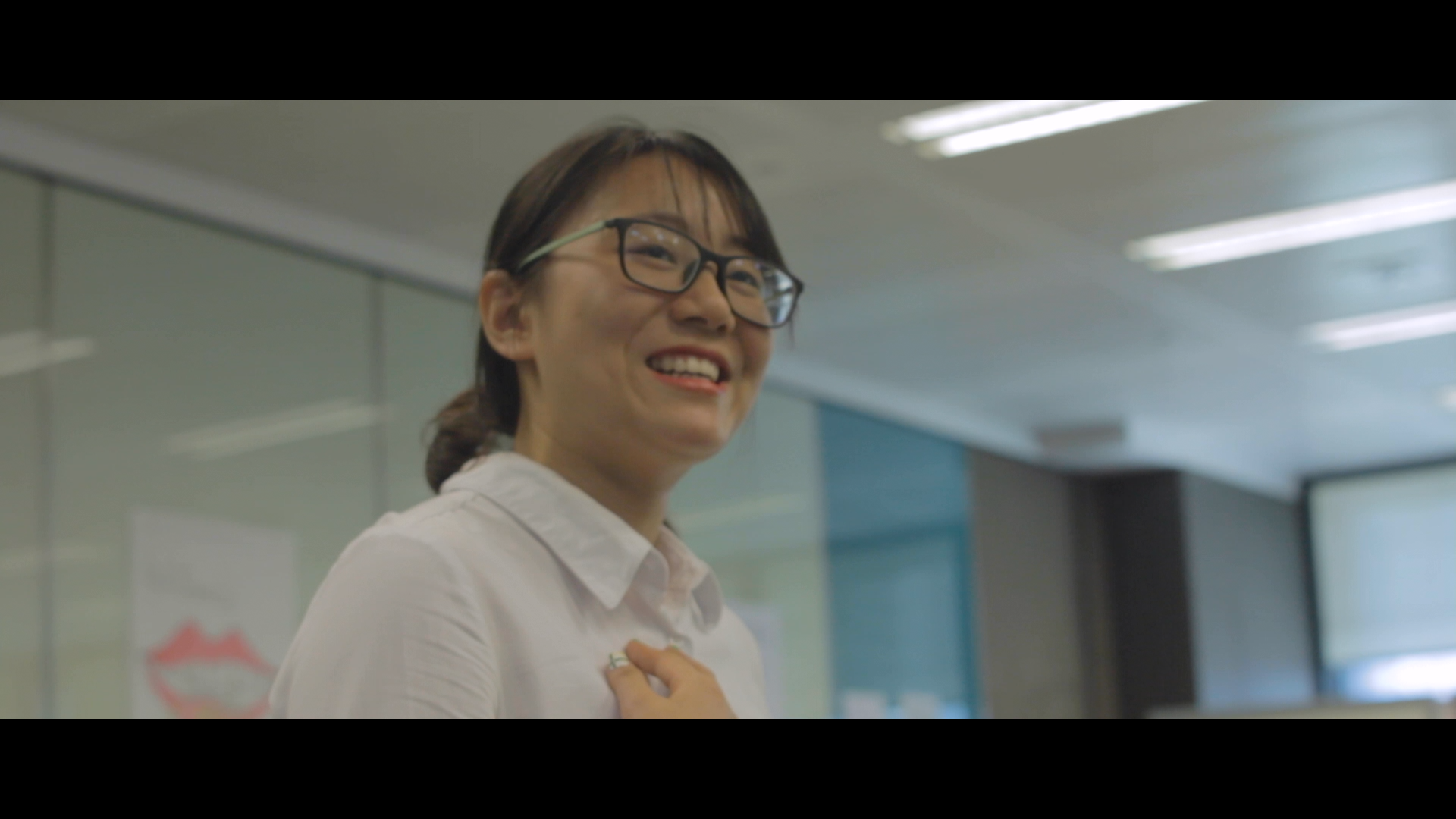
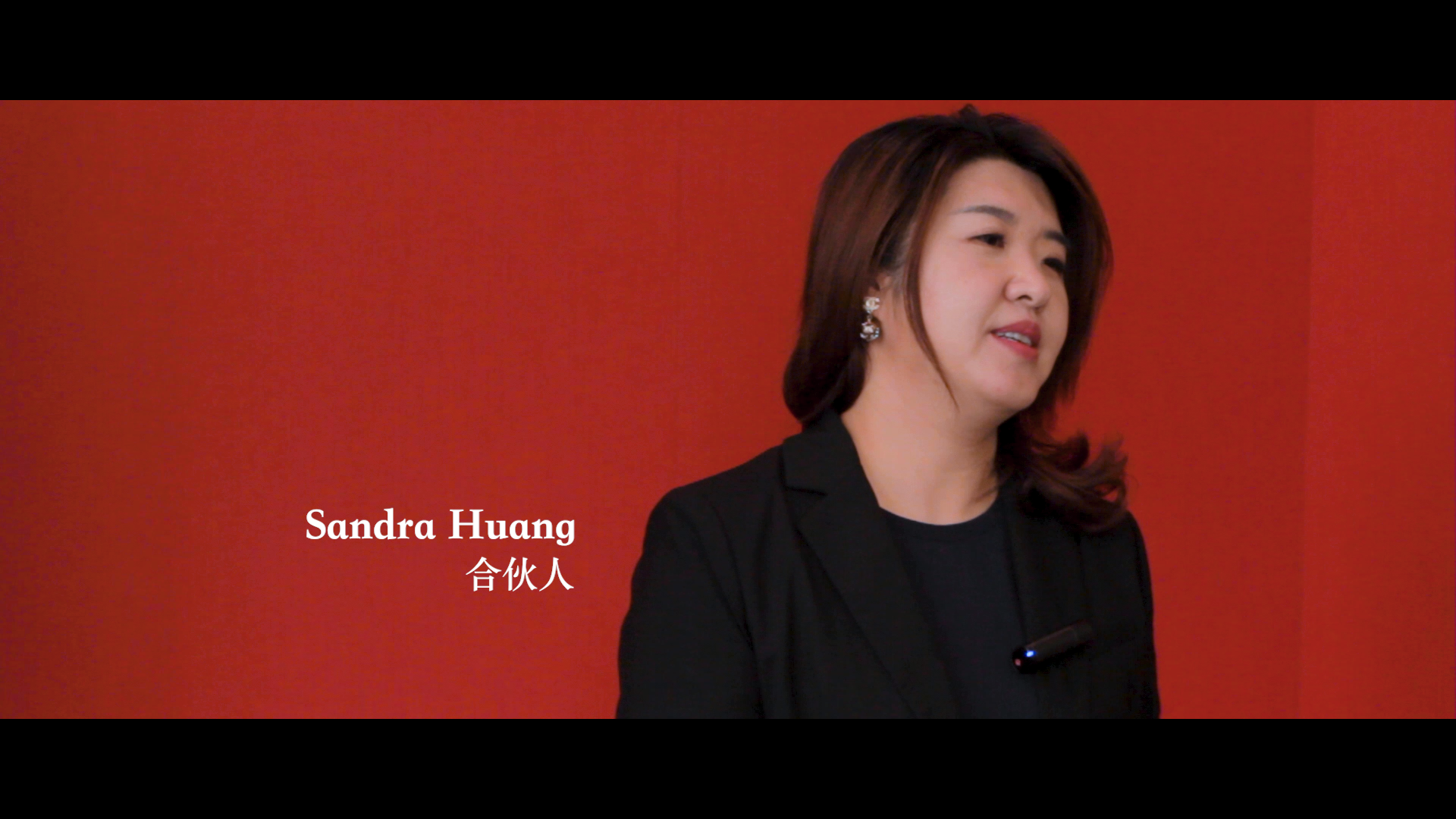
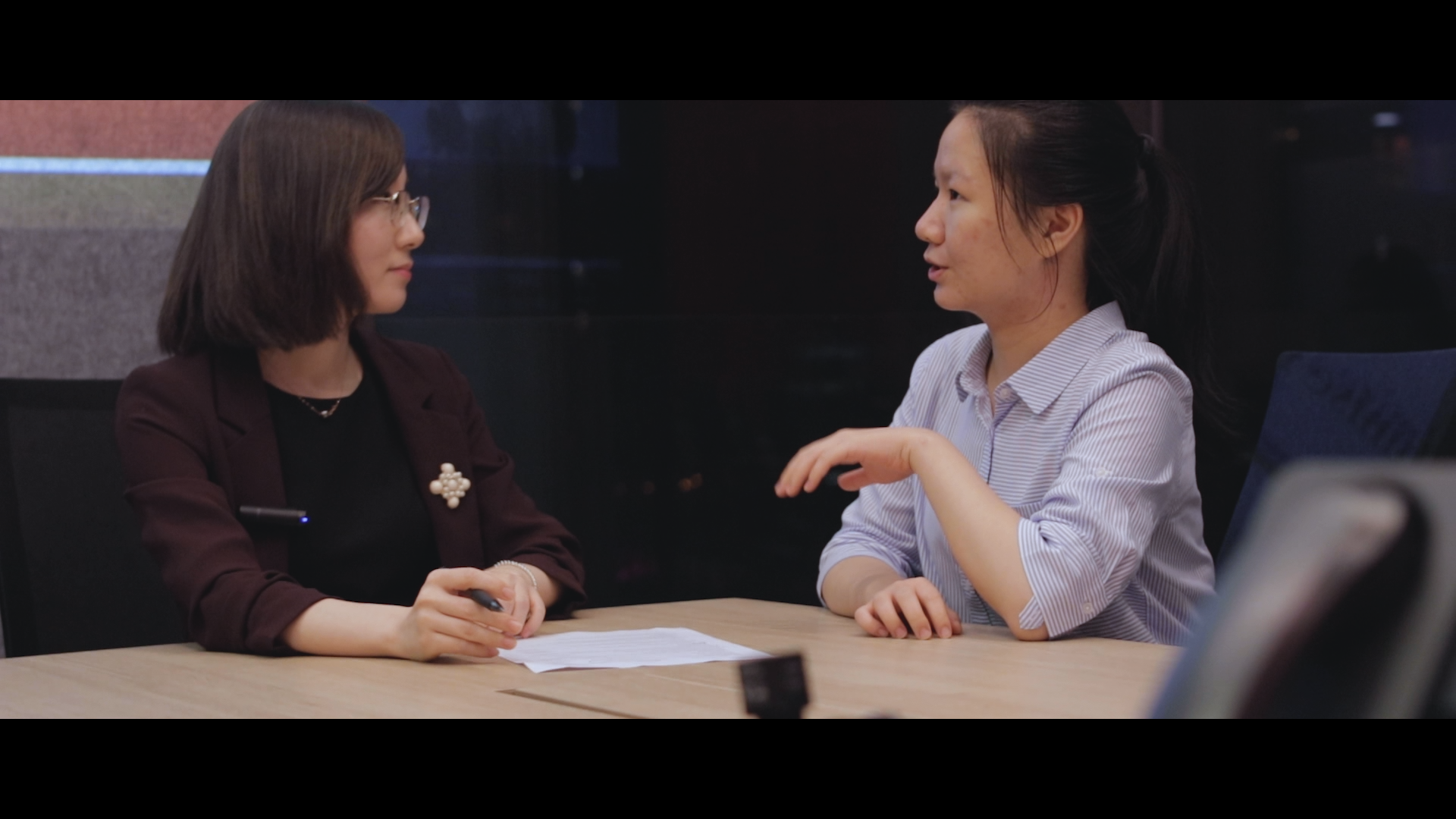
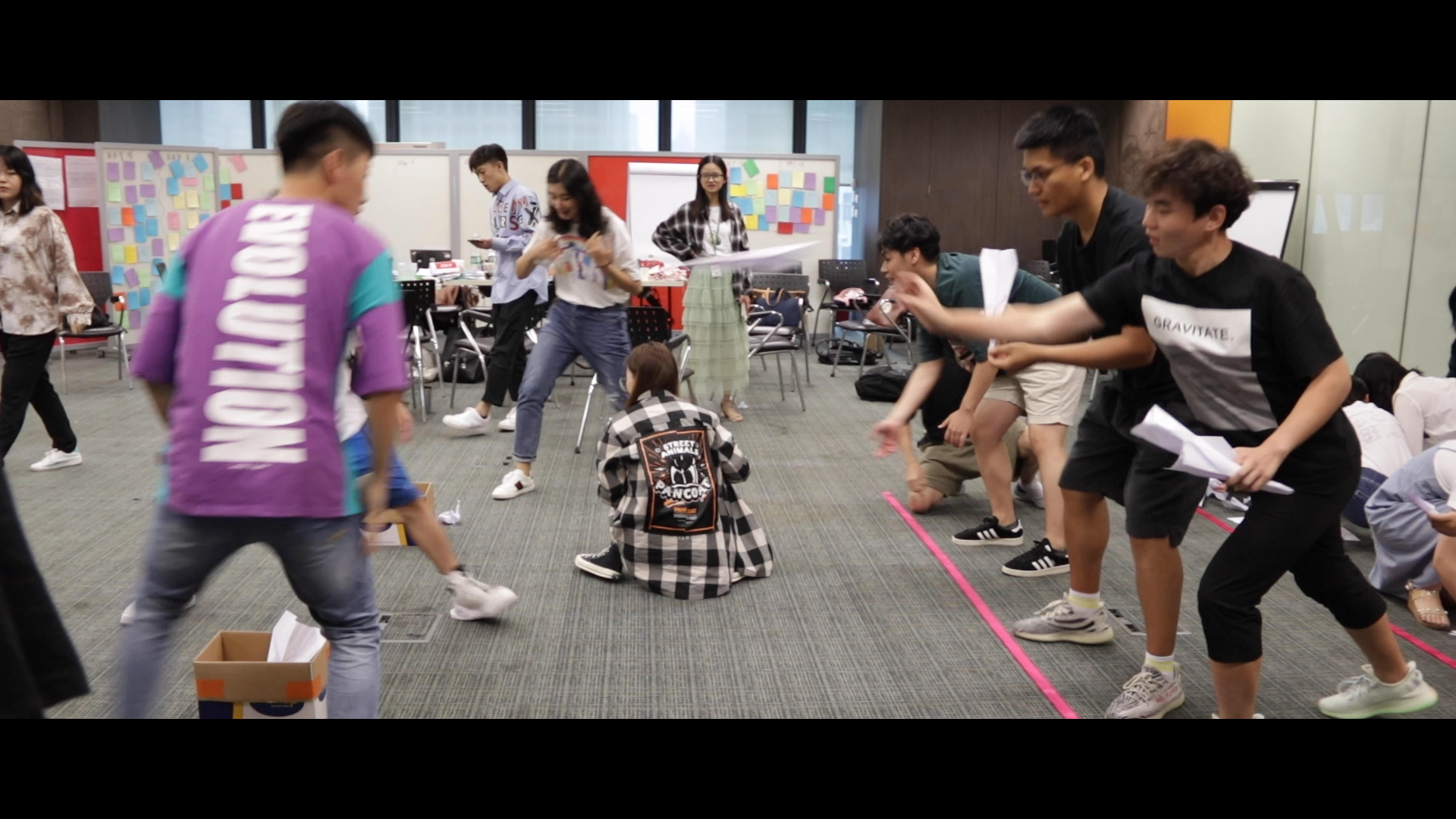
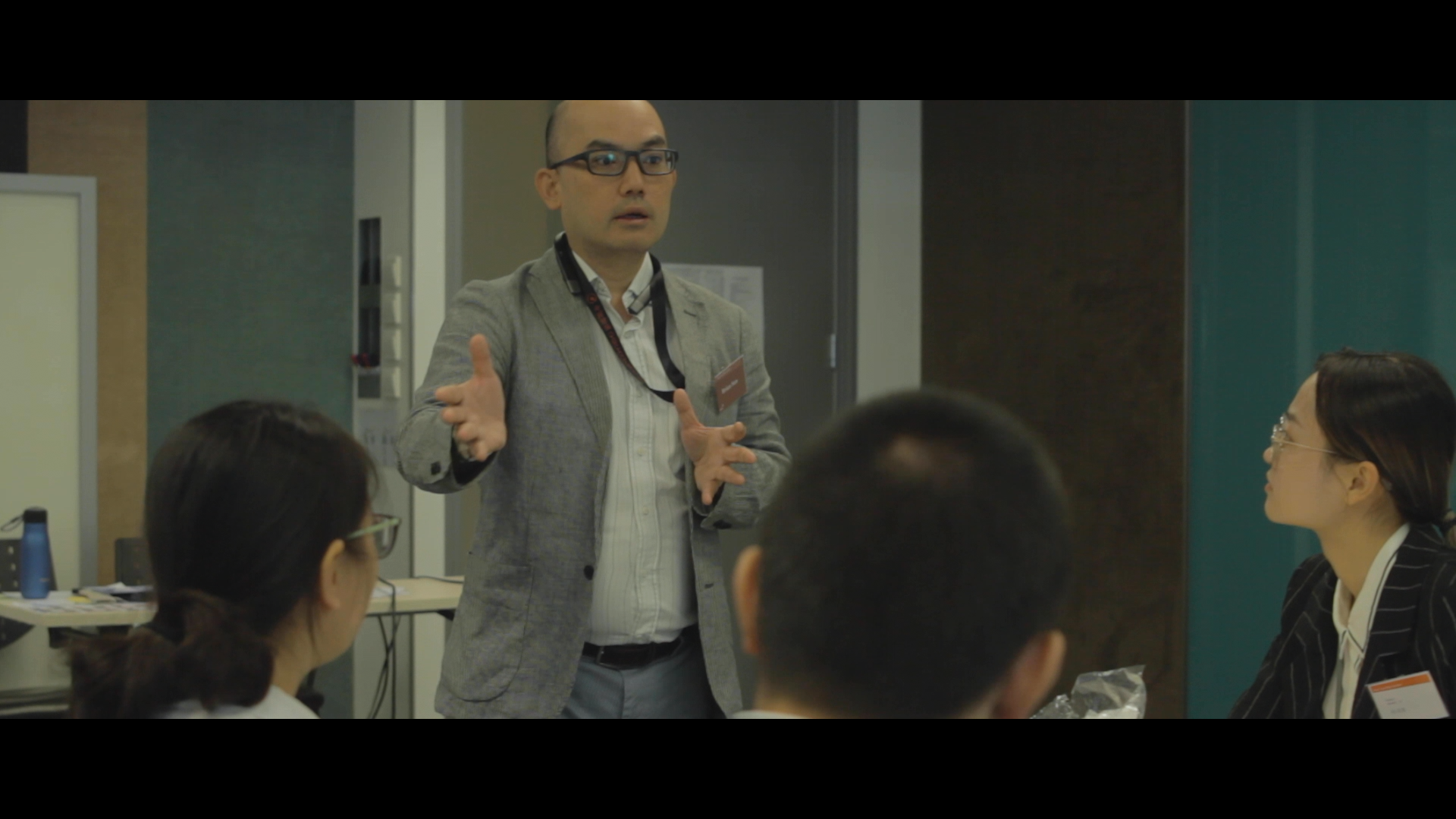
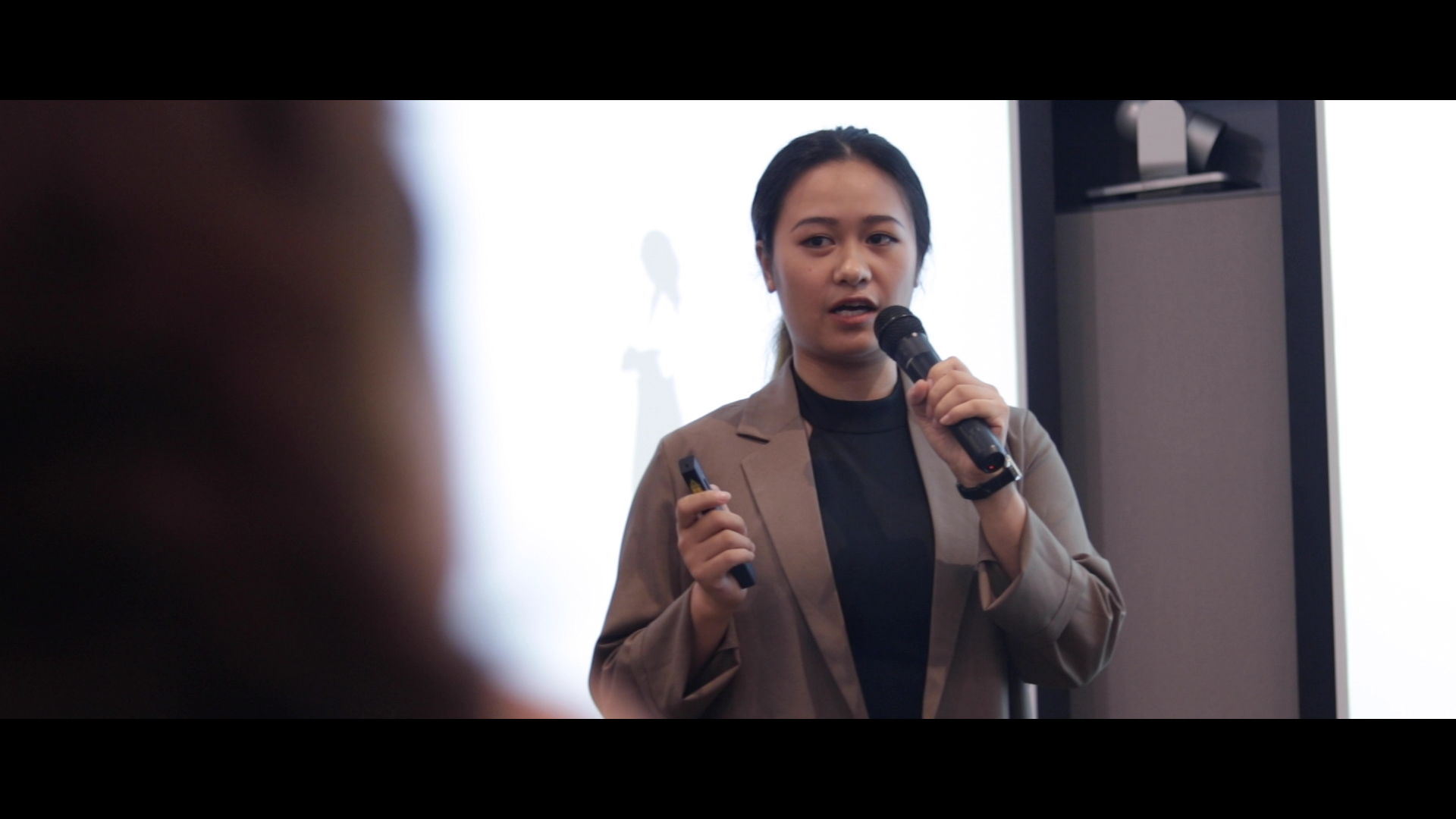
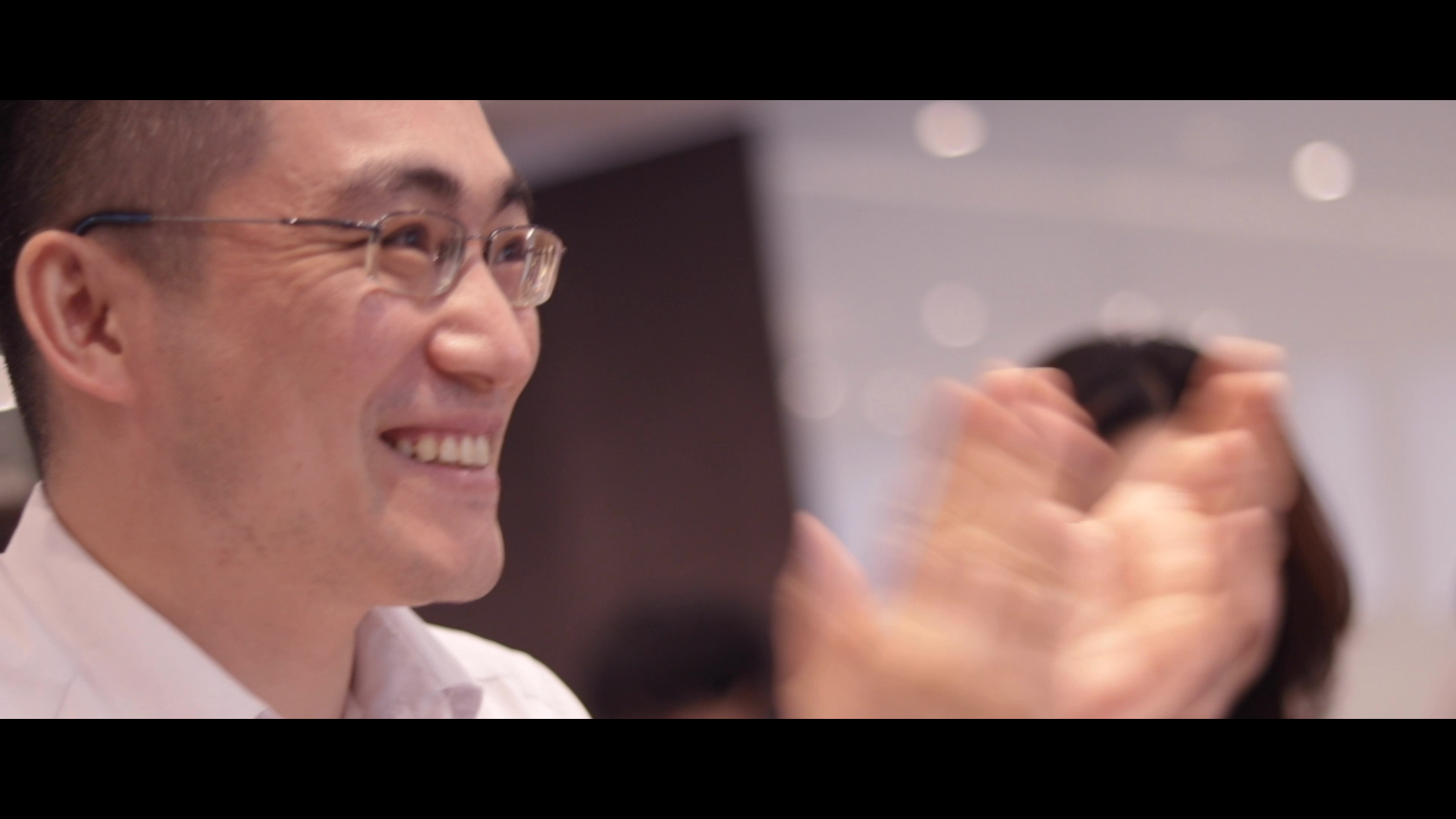
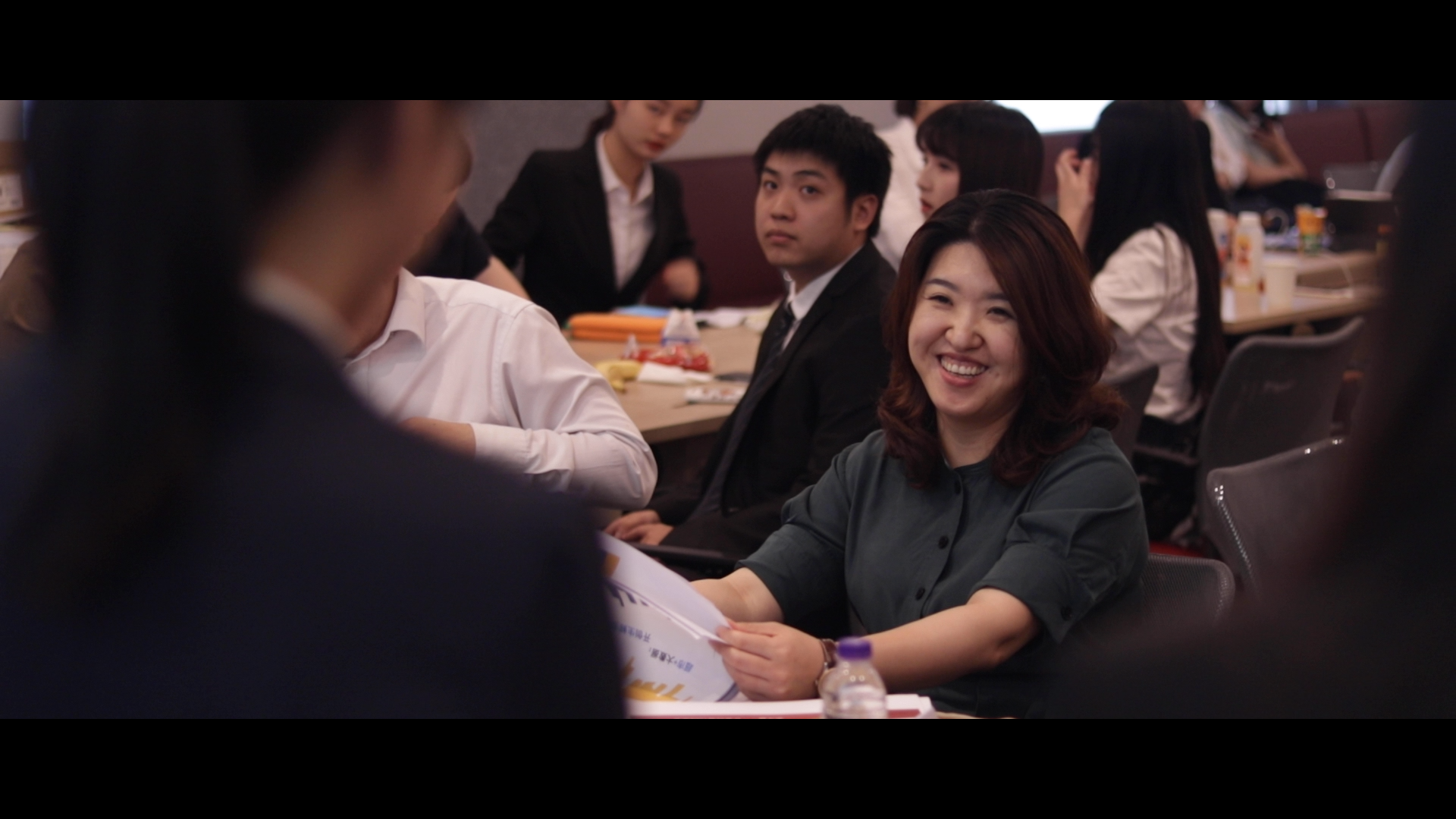
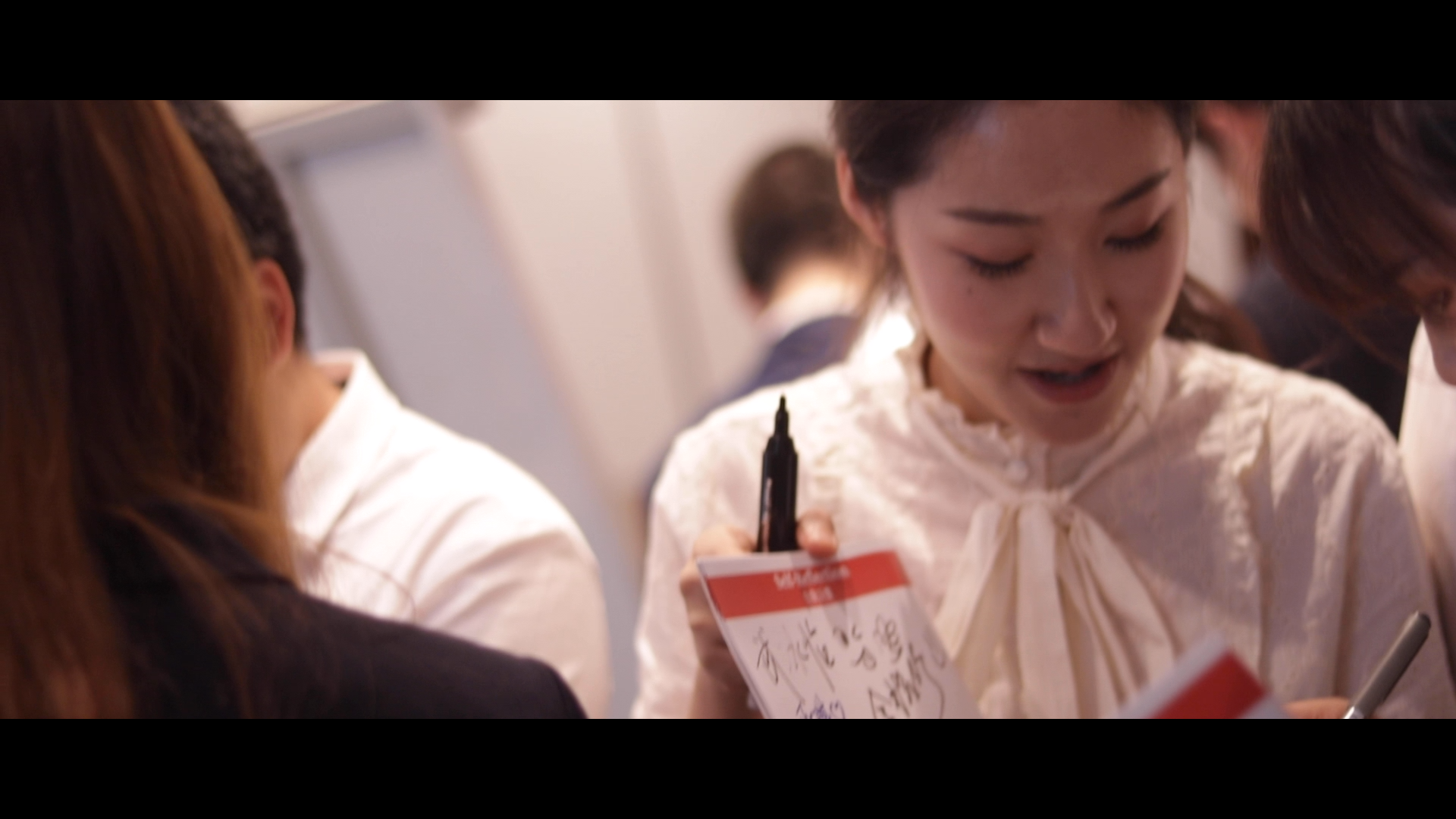
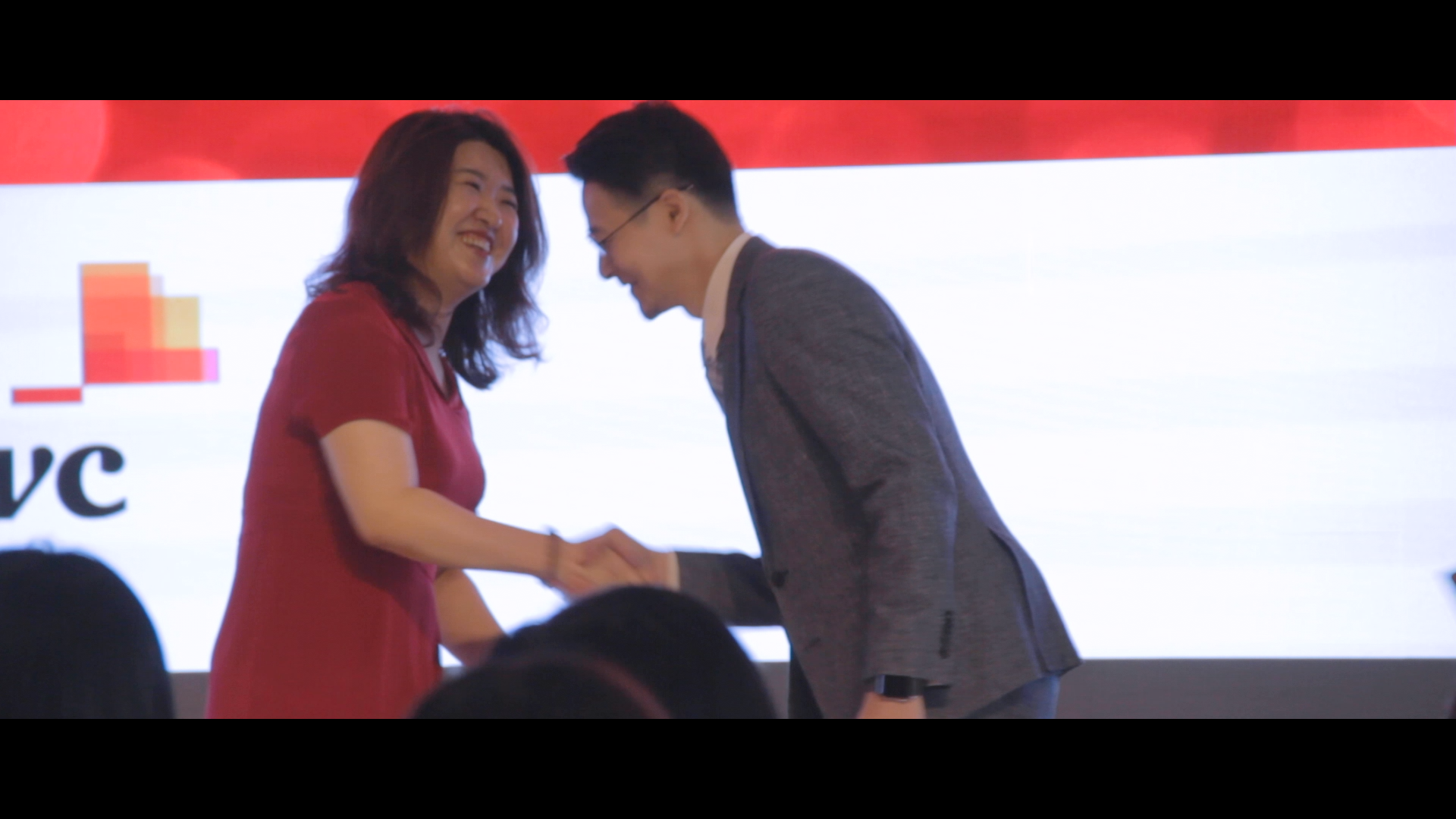
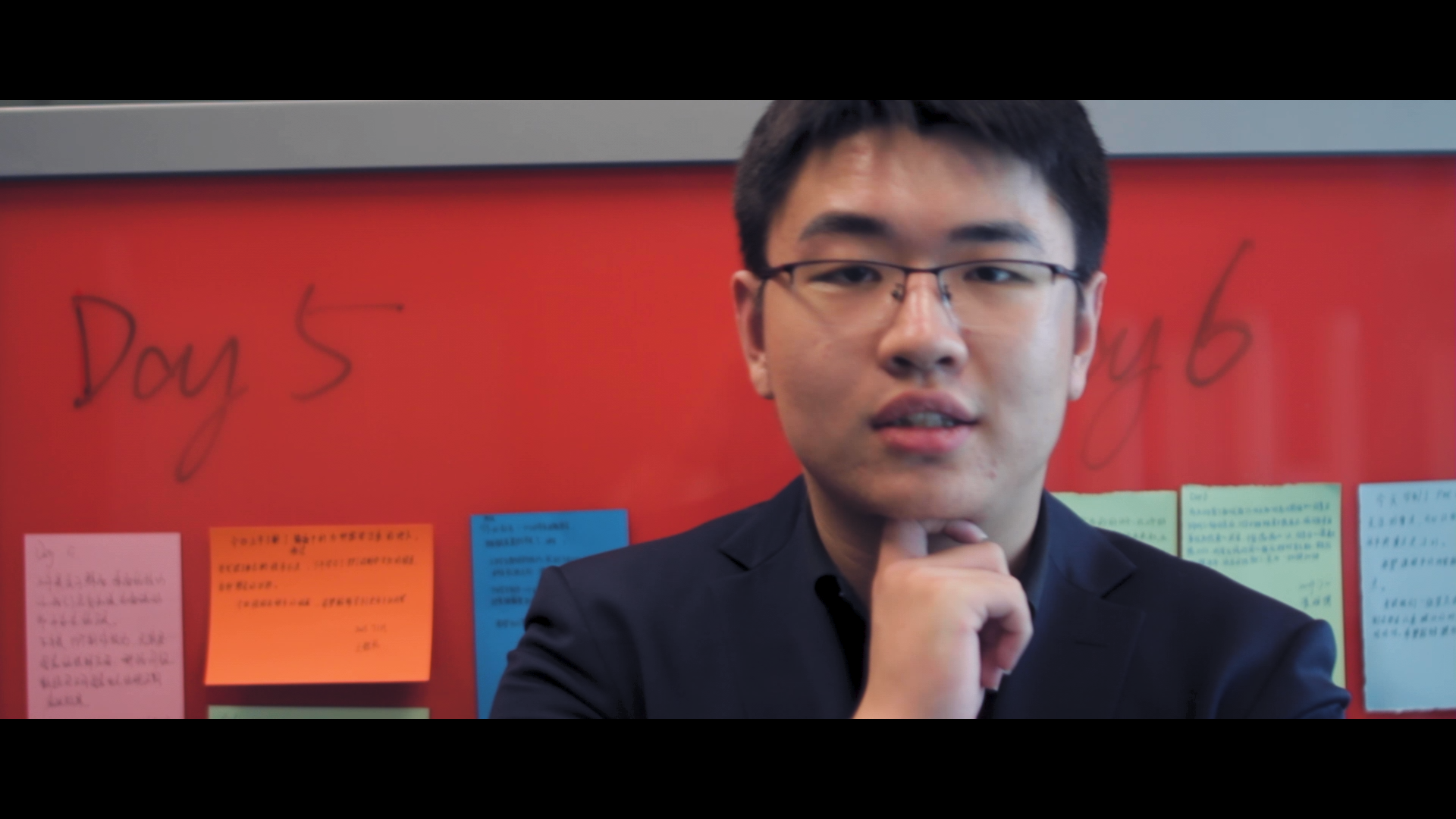

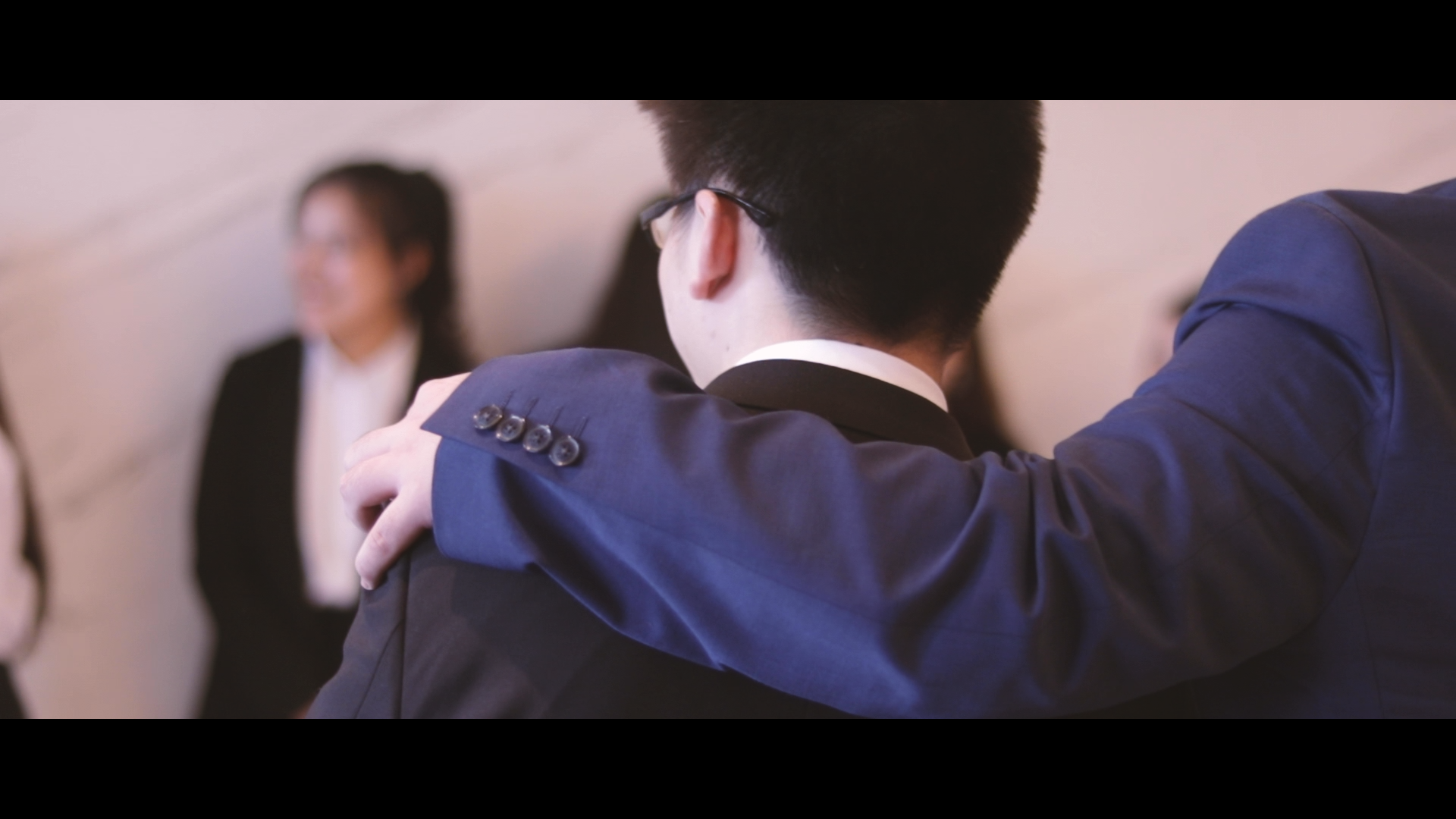
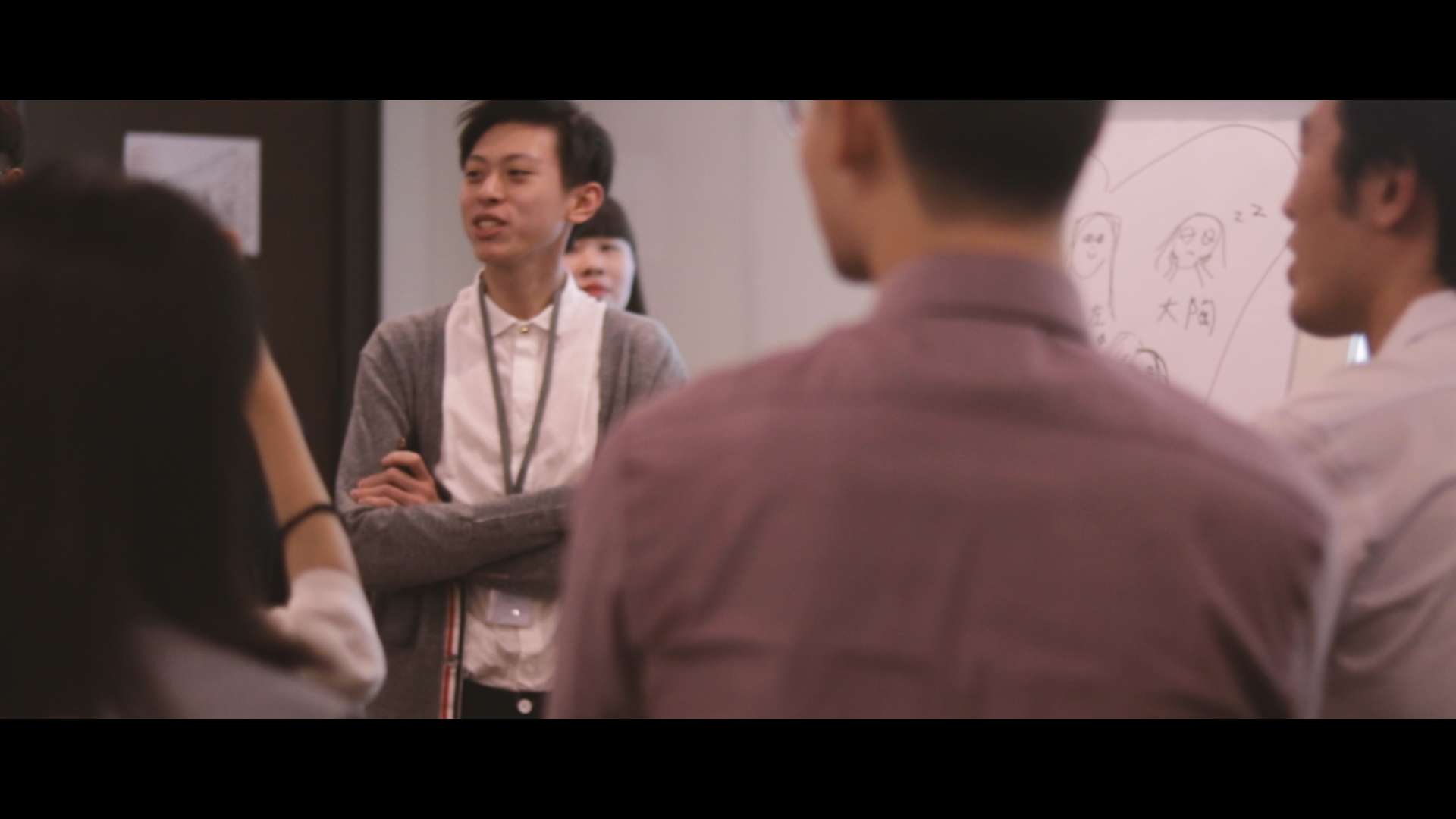
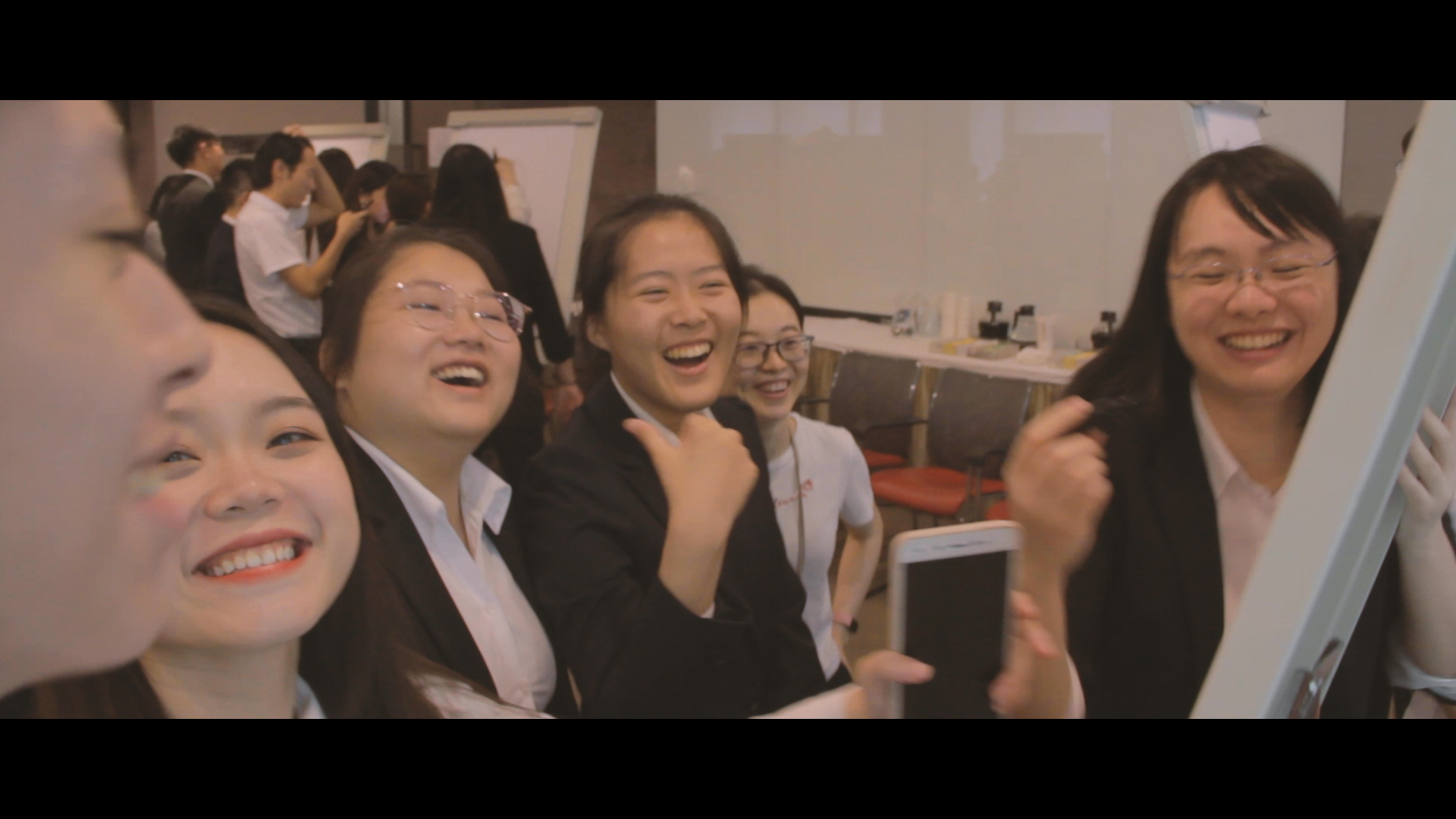
The finished film — done in under a month with little budget — was released on China's Teacher's Day on WeChat.
It garnered positive feedback from PwC You Plus' national leadership team, as well as sparked a wave of social media sharing from past Anchor students.
Onwards, the film is being used as the opener to the 2019 US Roadshow, where PwC will be visiting dozens of colleges to recruit for its various business education programs.
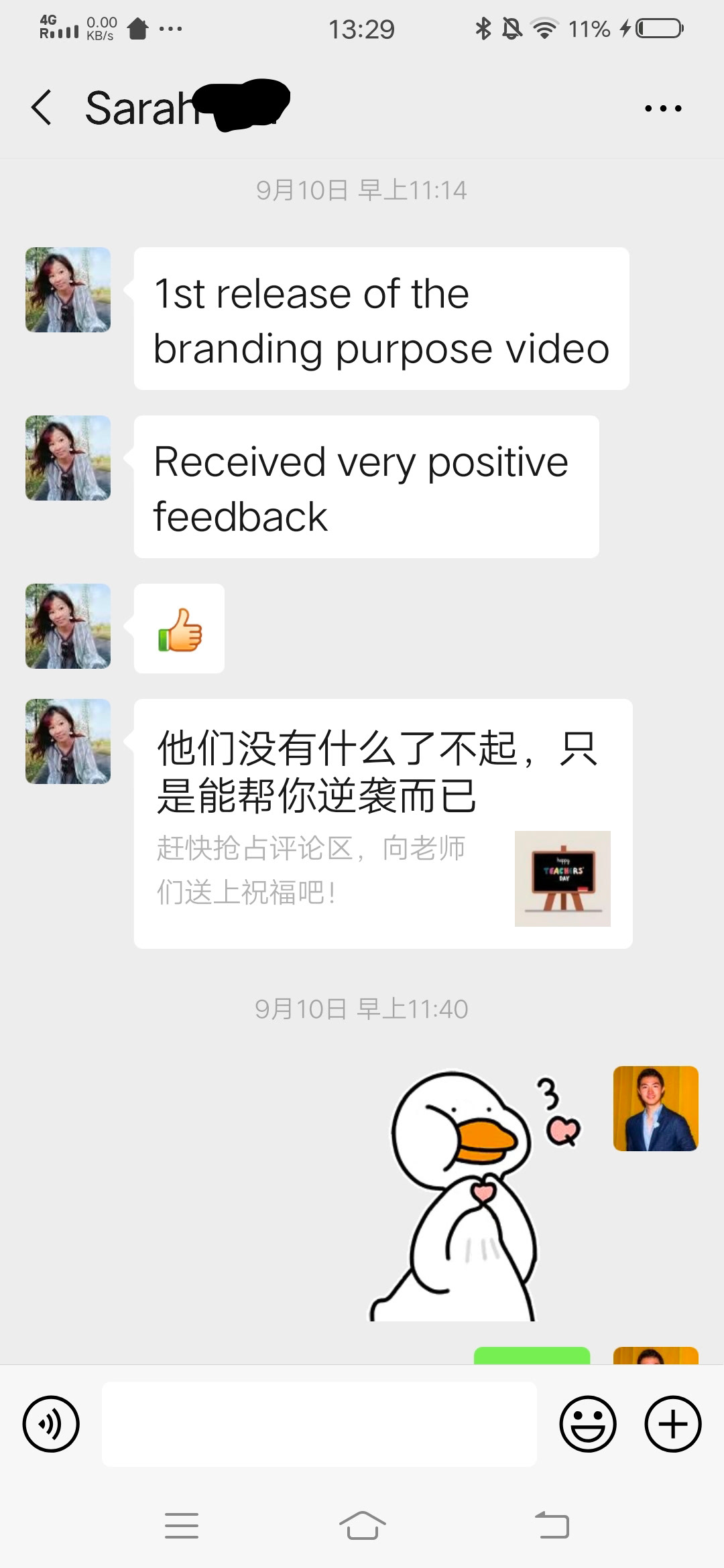
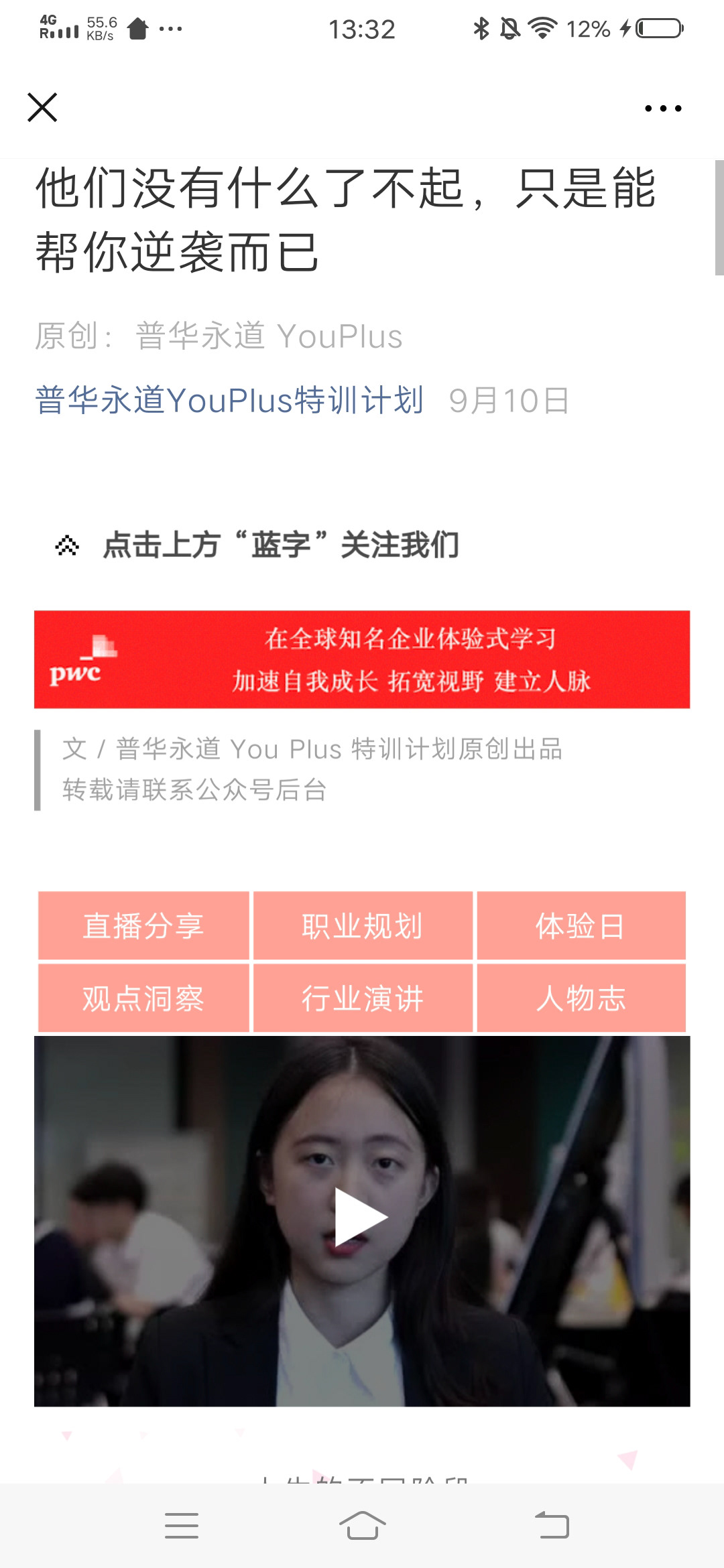
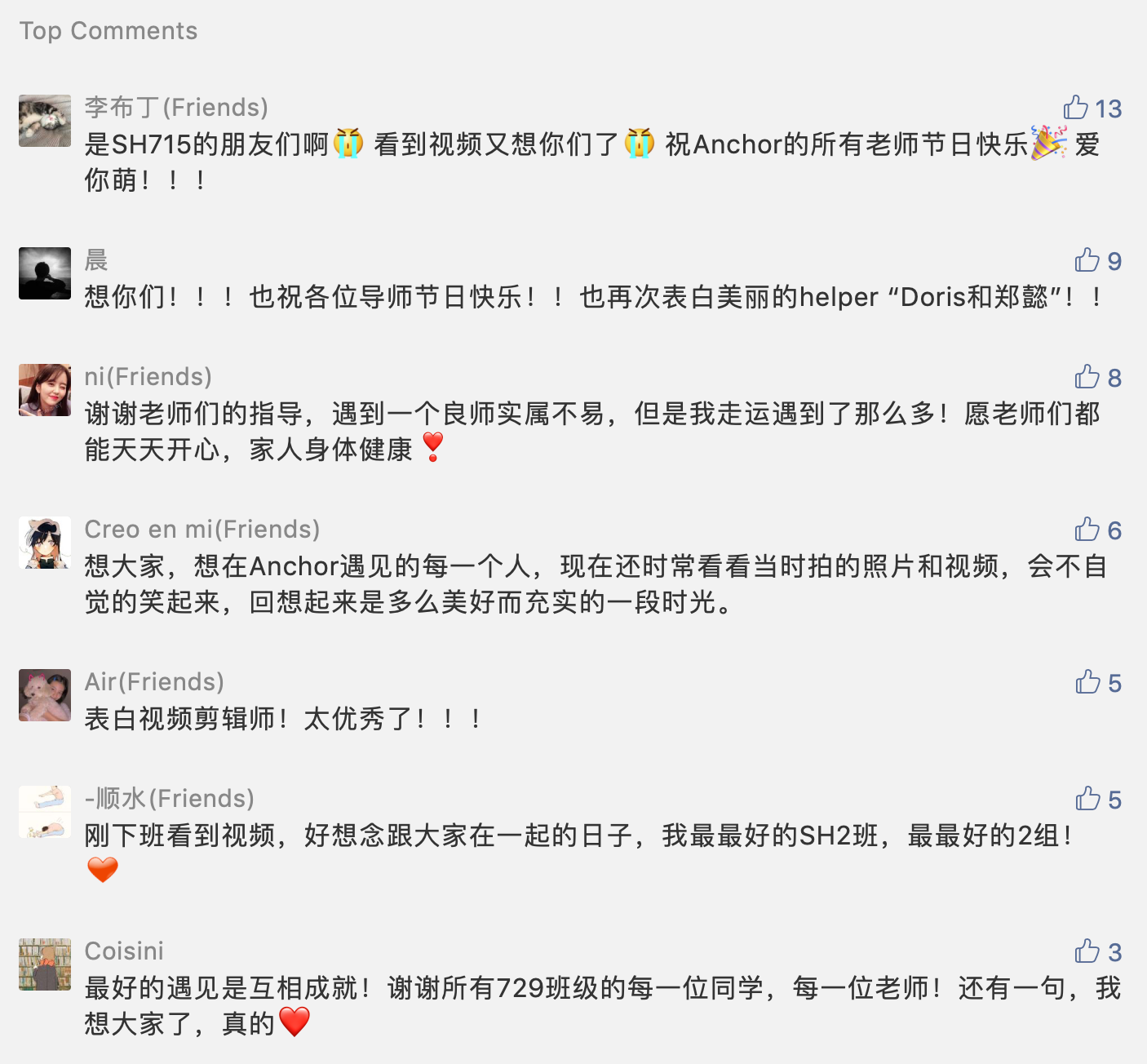
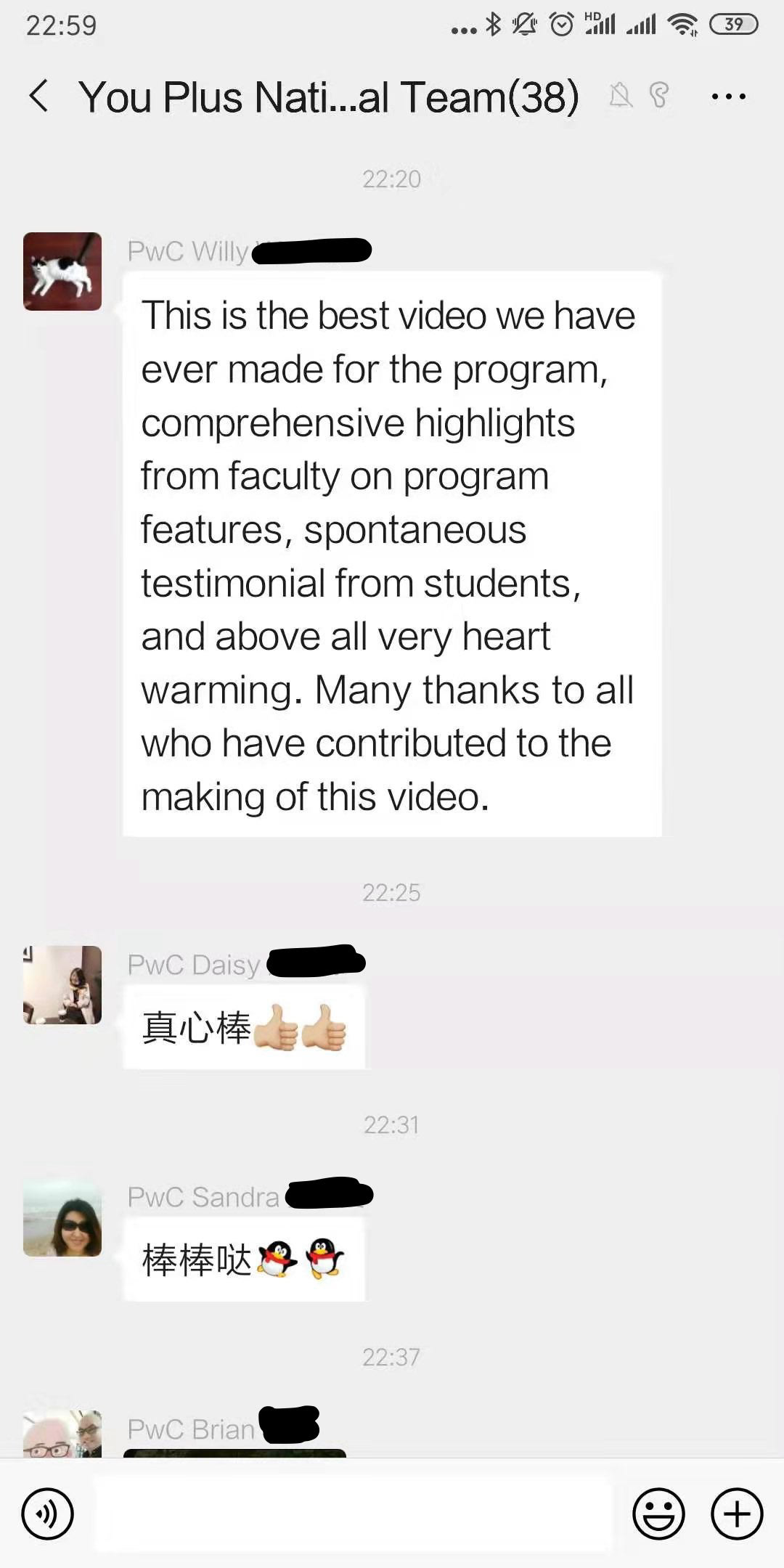
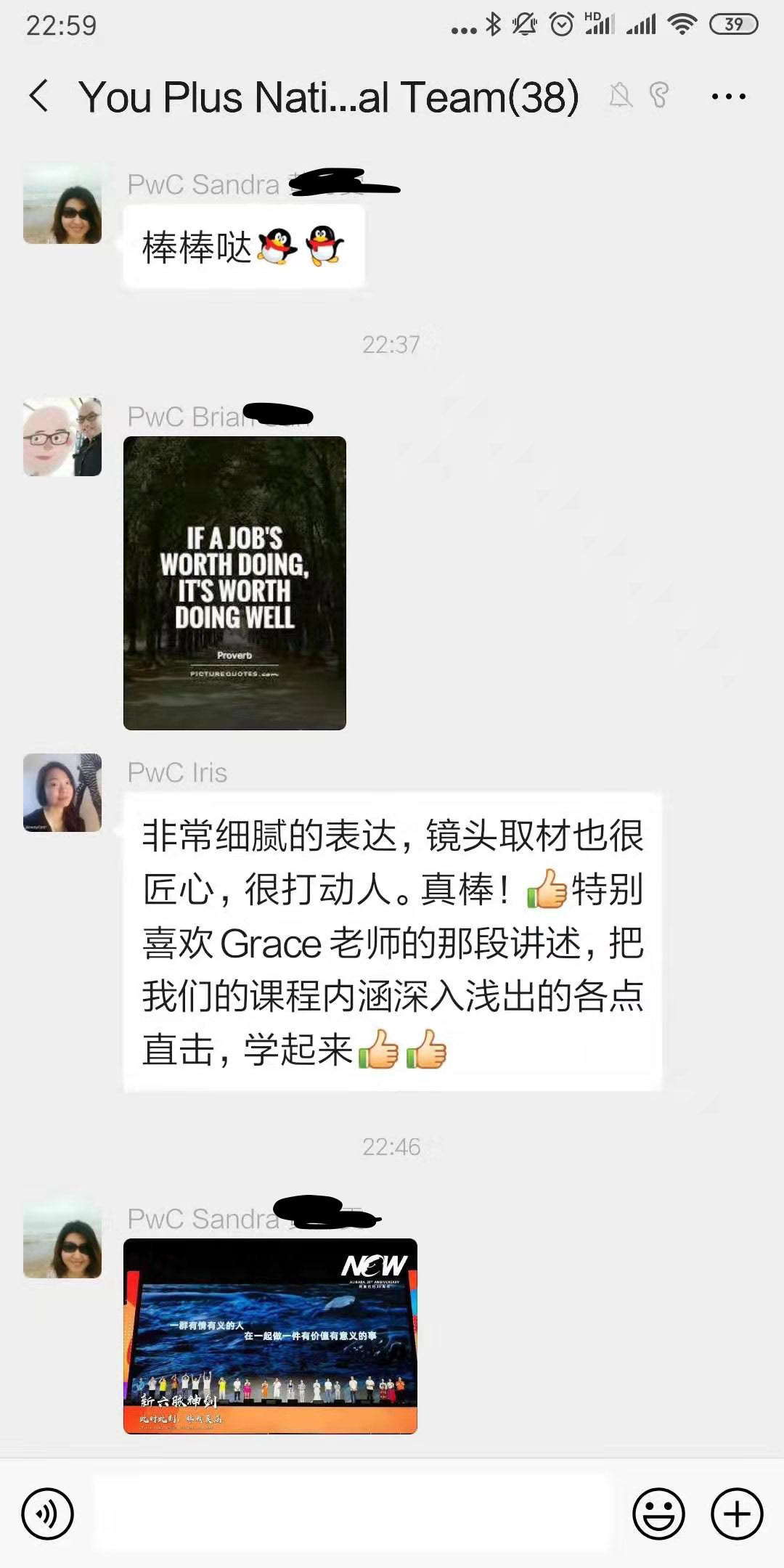
So much material was gathered during production that I was actually able to leave behind two additional projects:
one, an inventory of b-roll.
two, a second film about the curriculum.
Composed of unused mentor soundbites, the second film will replace the curriculum presentation part of the Roadshow, relieving presenters of a dry and repetitive speech.
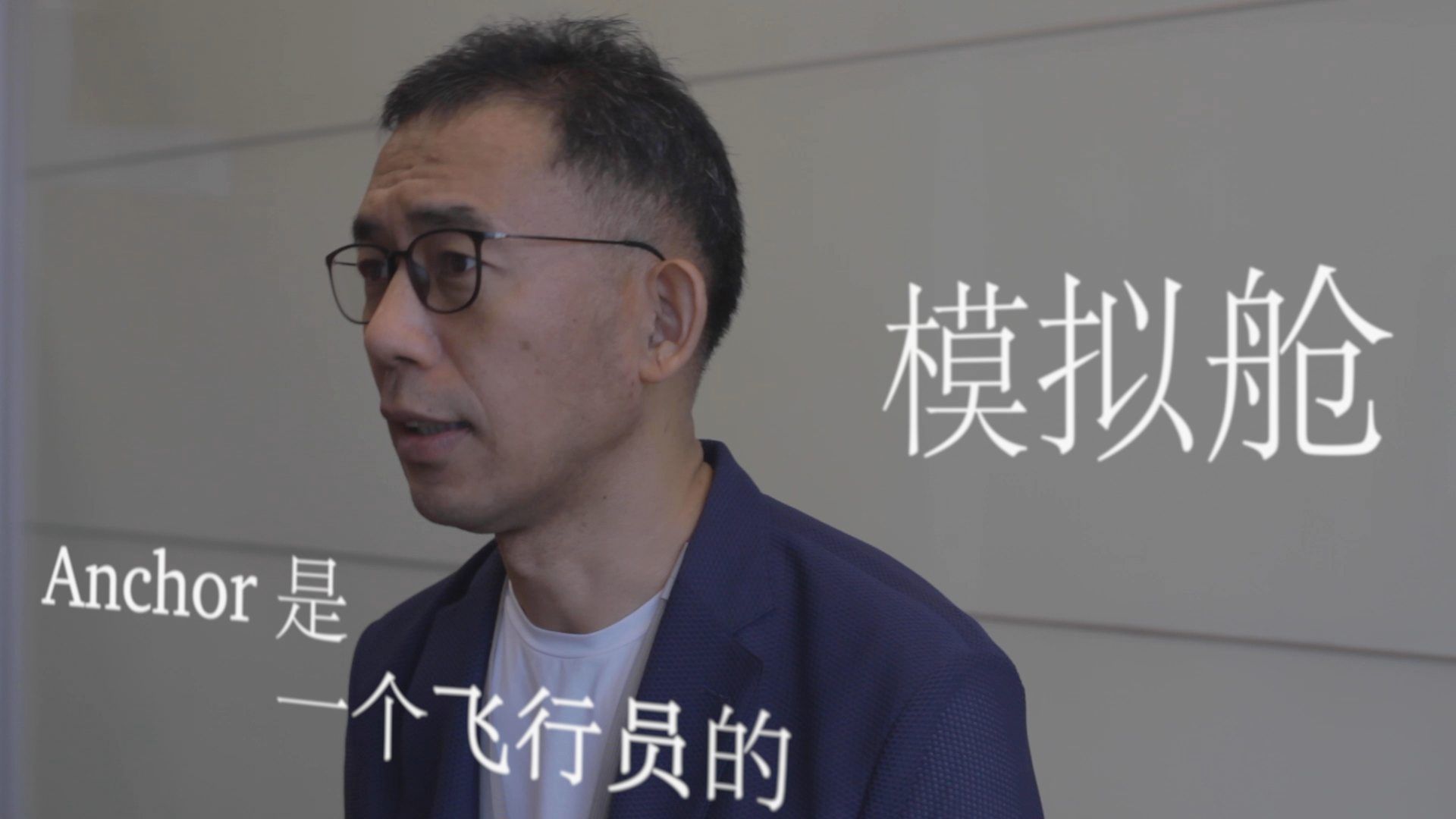
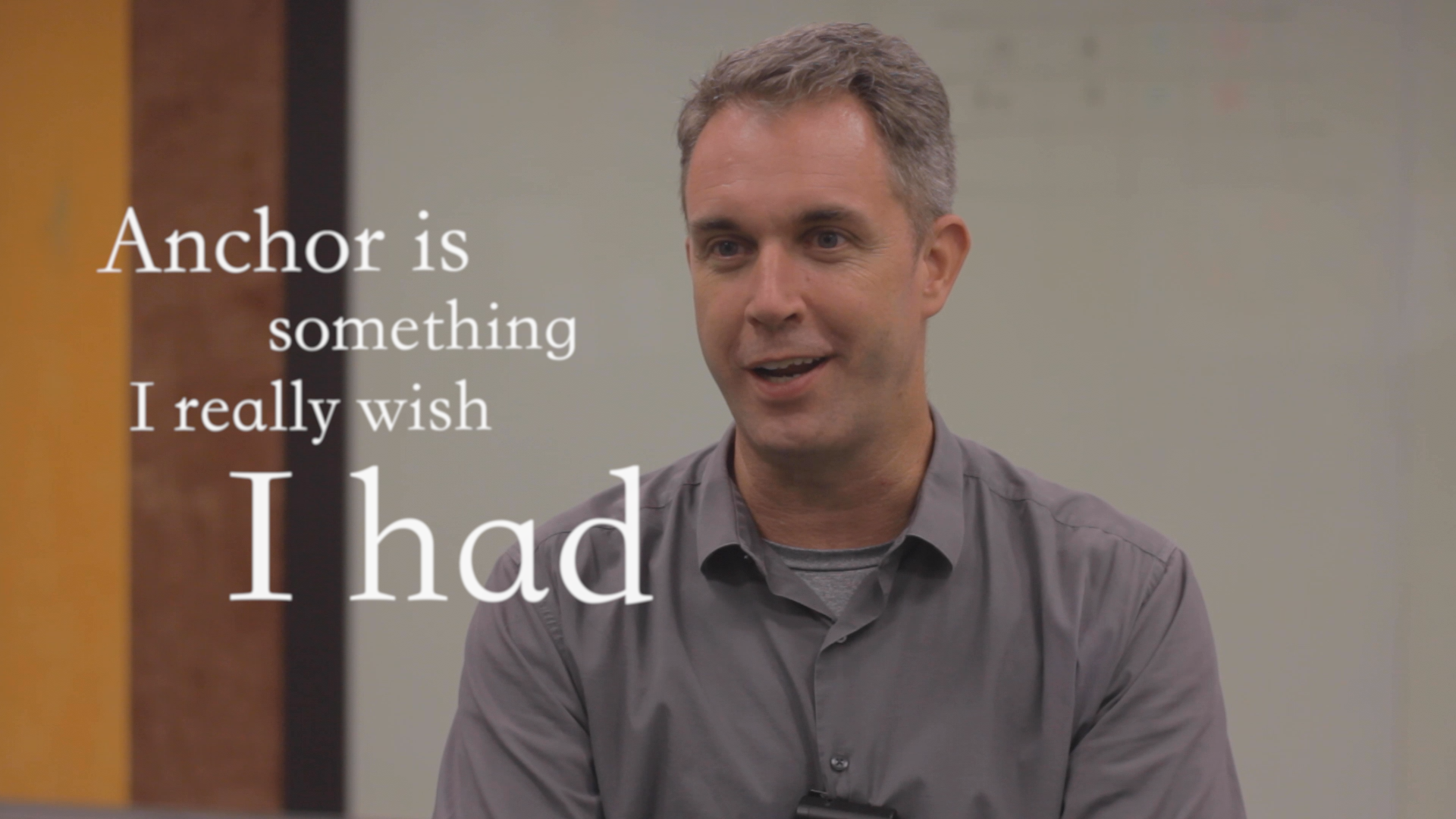
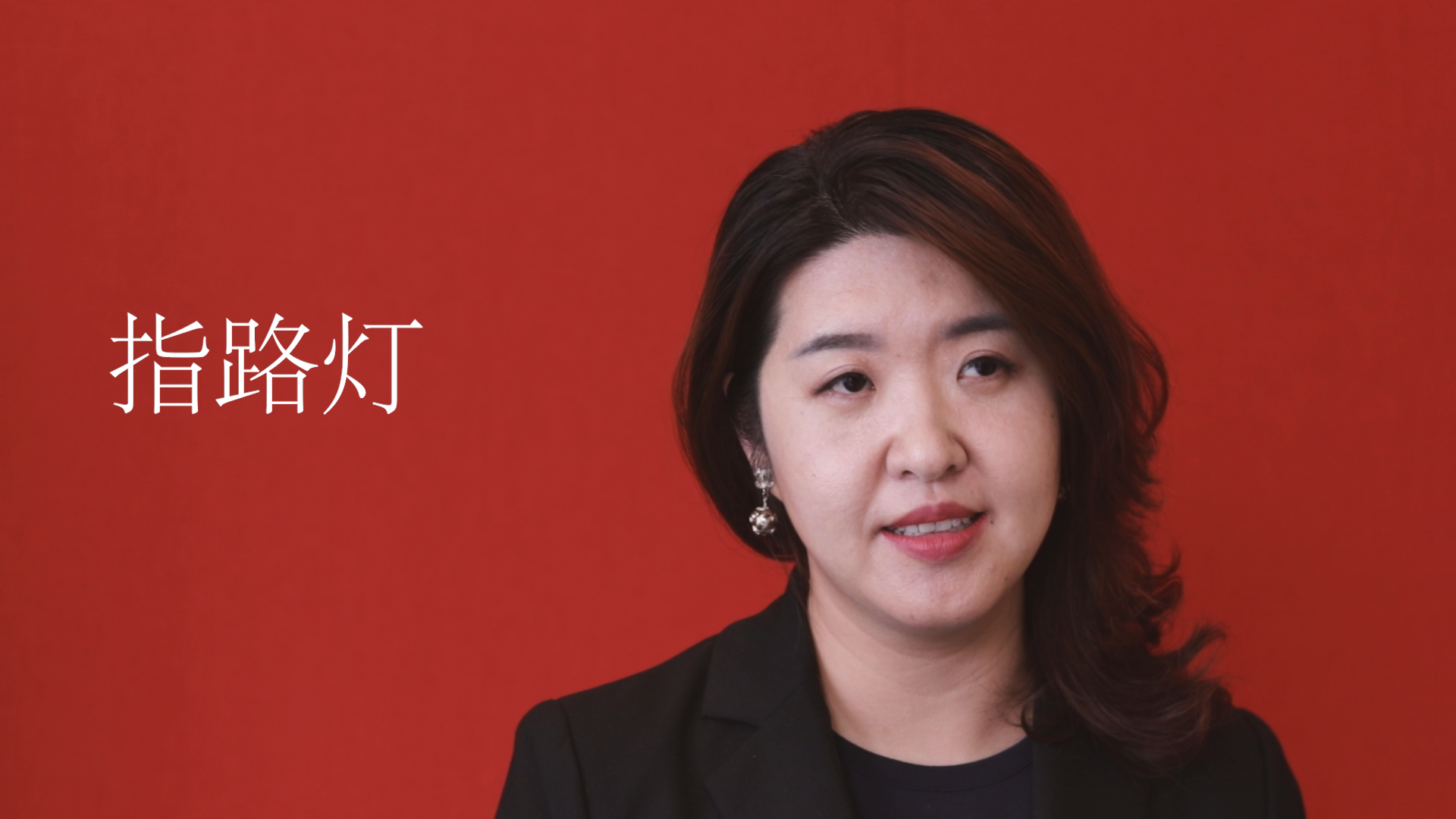
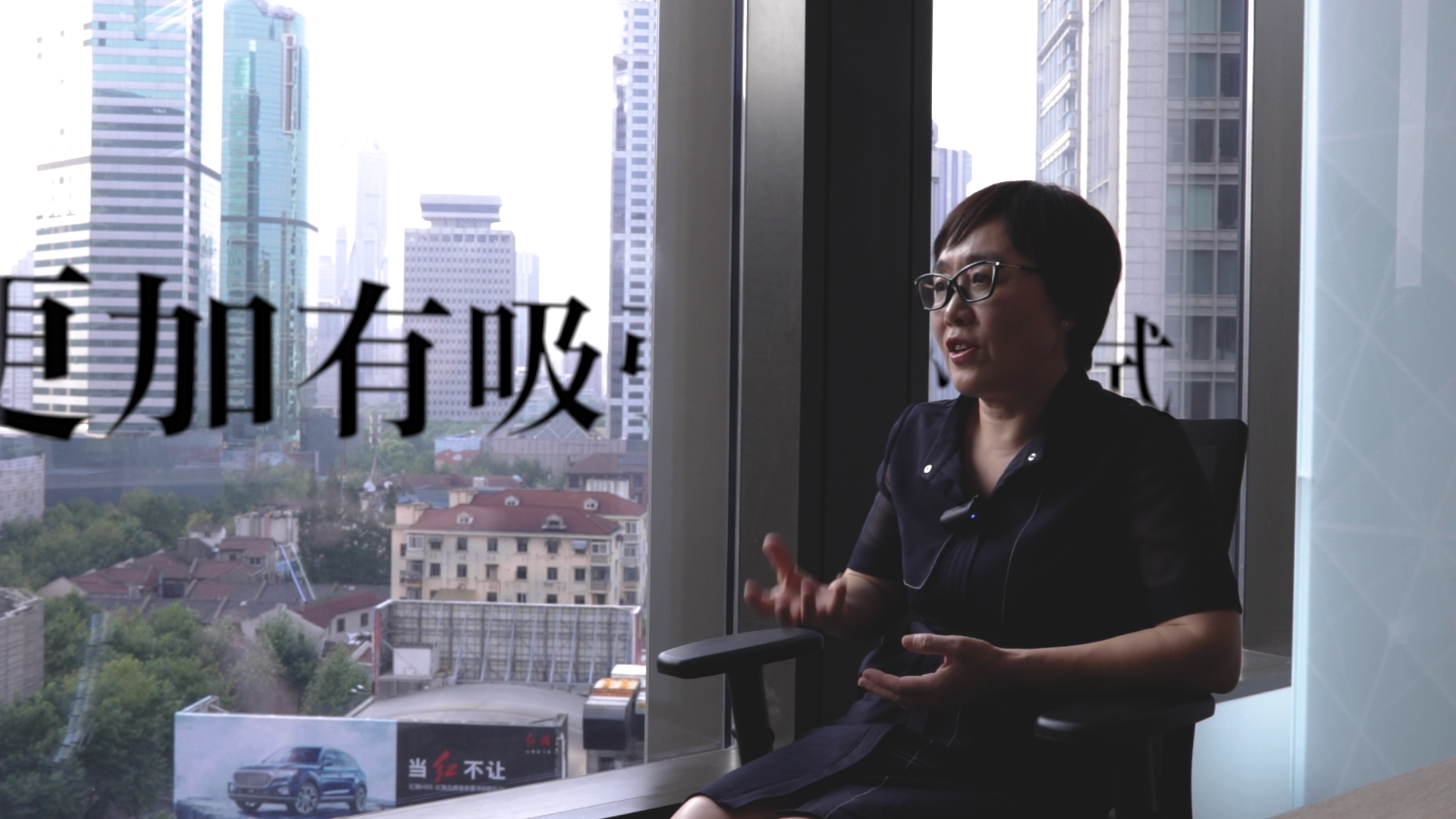
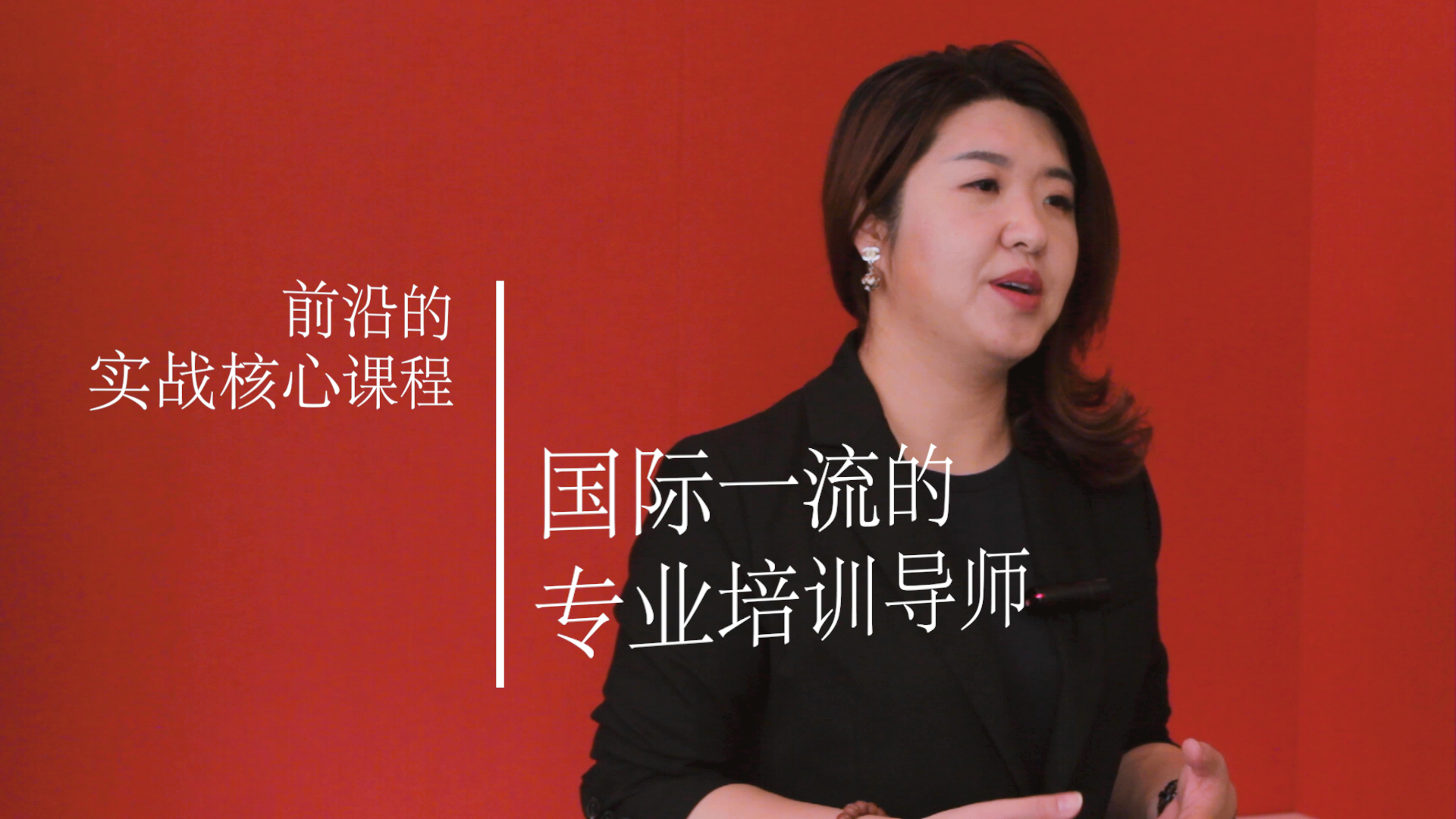
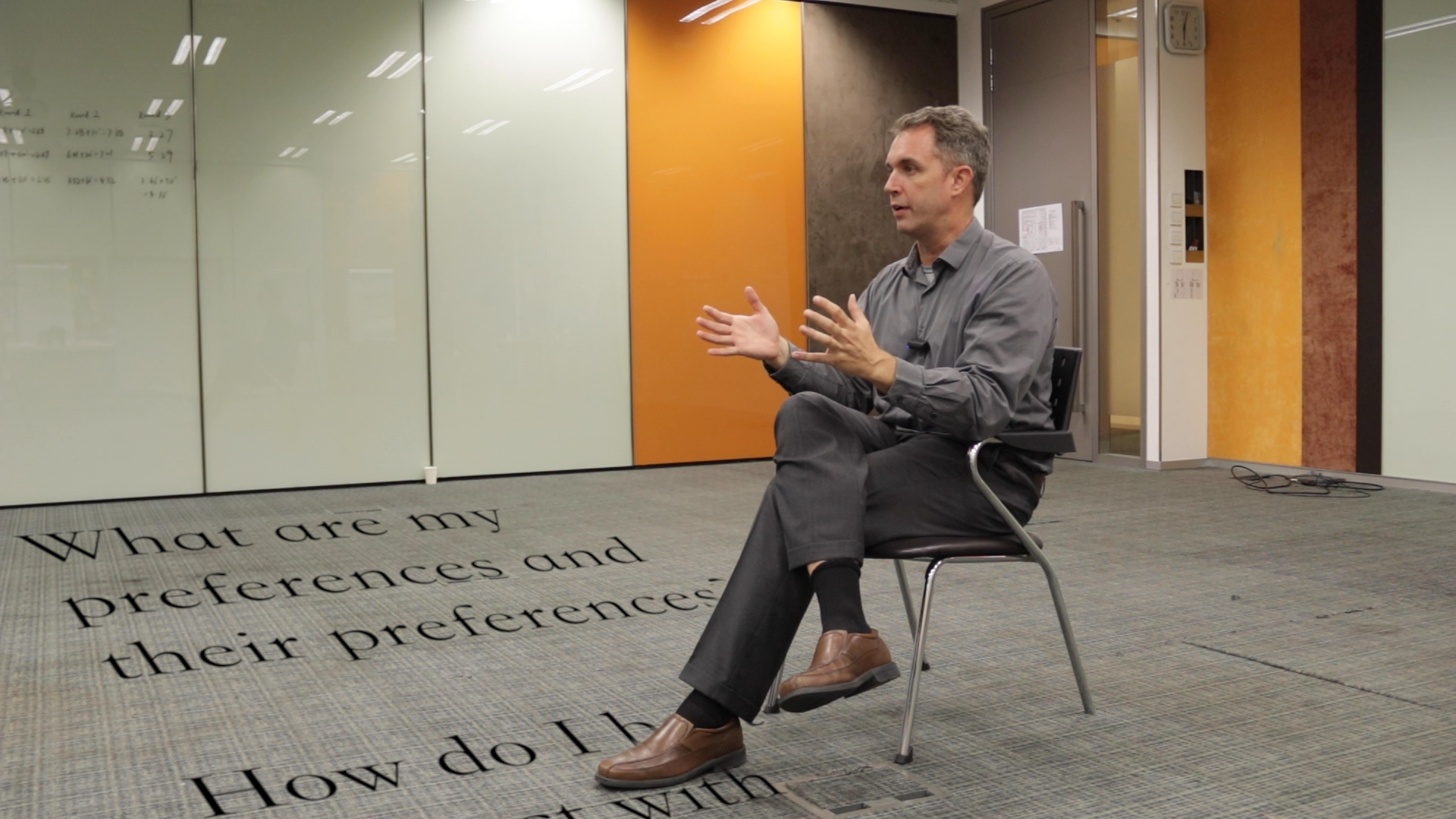
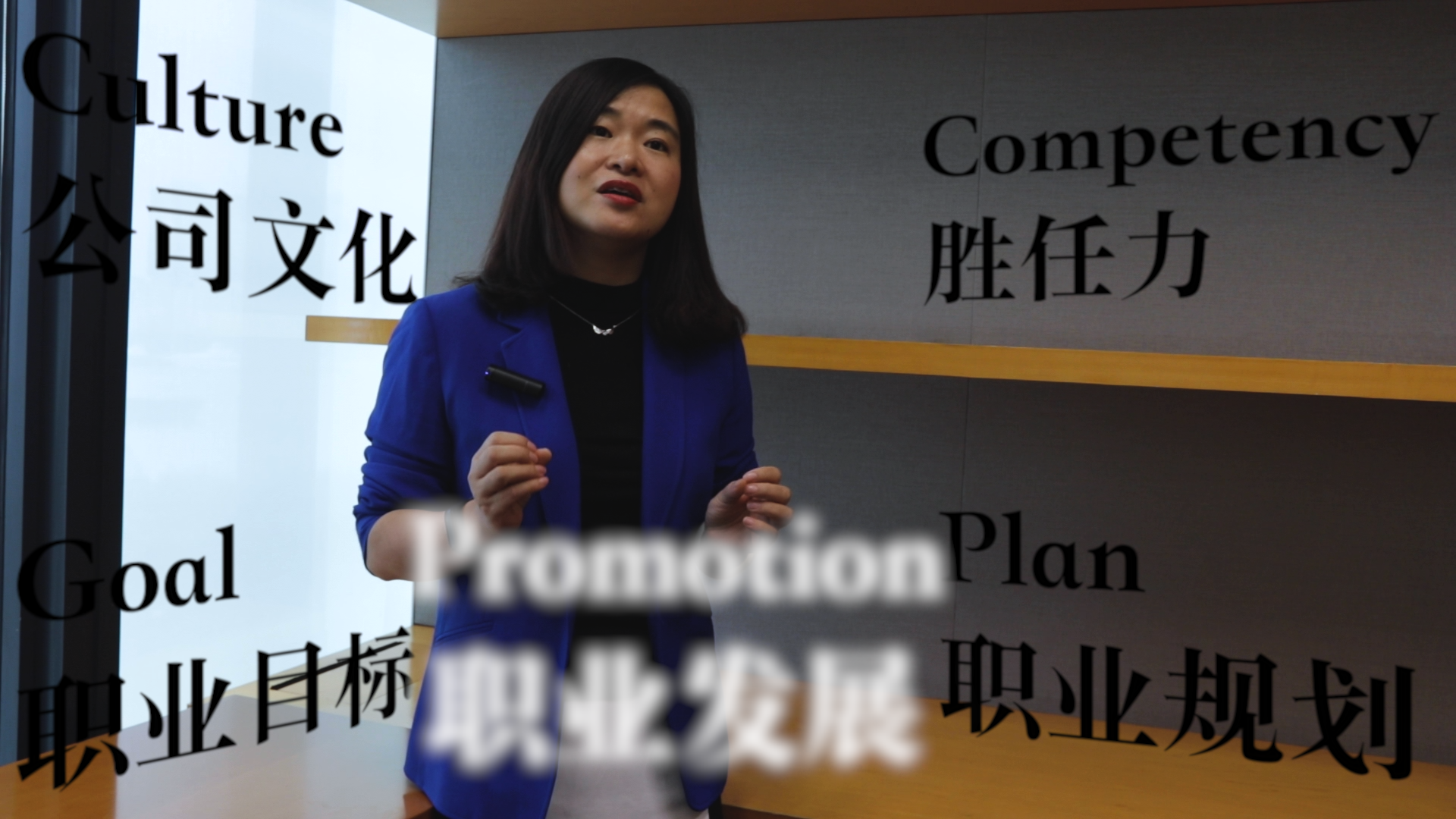
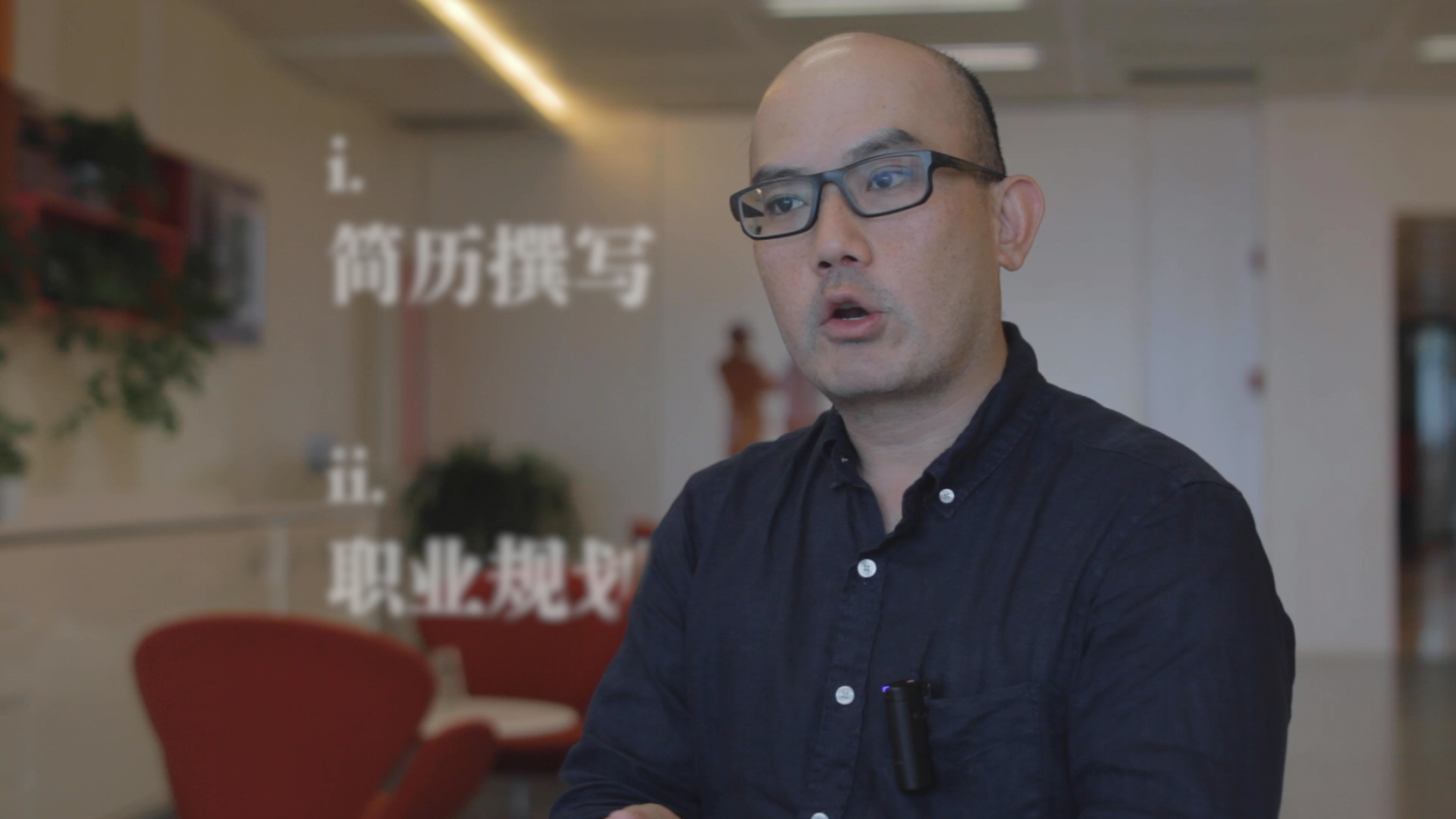
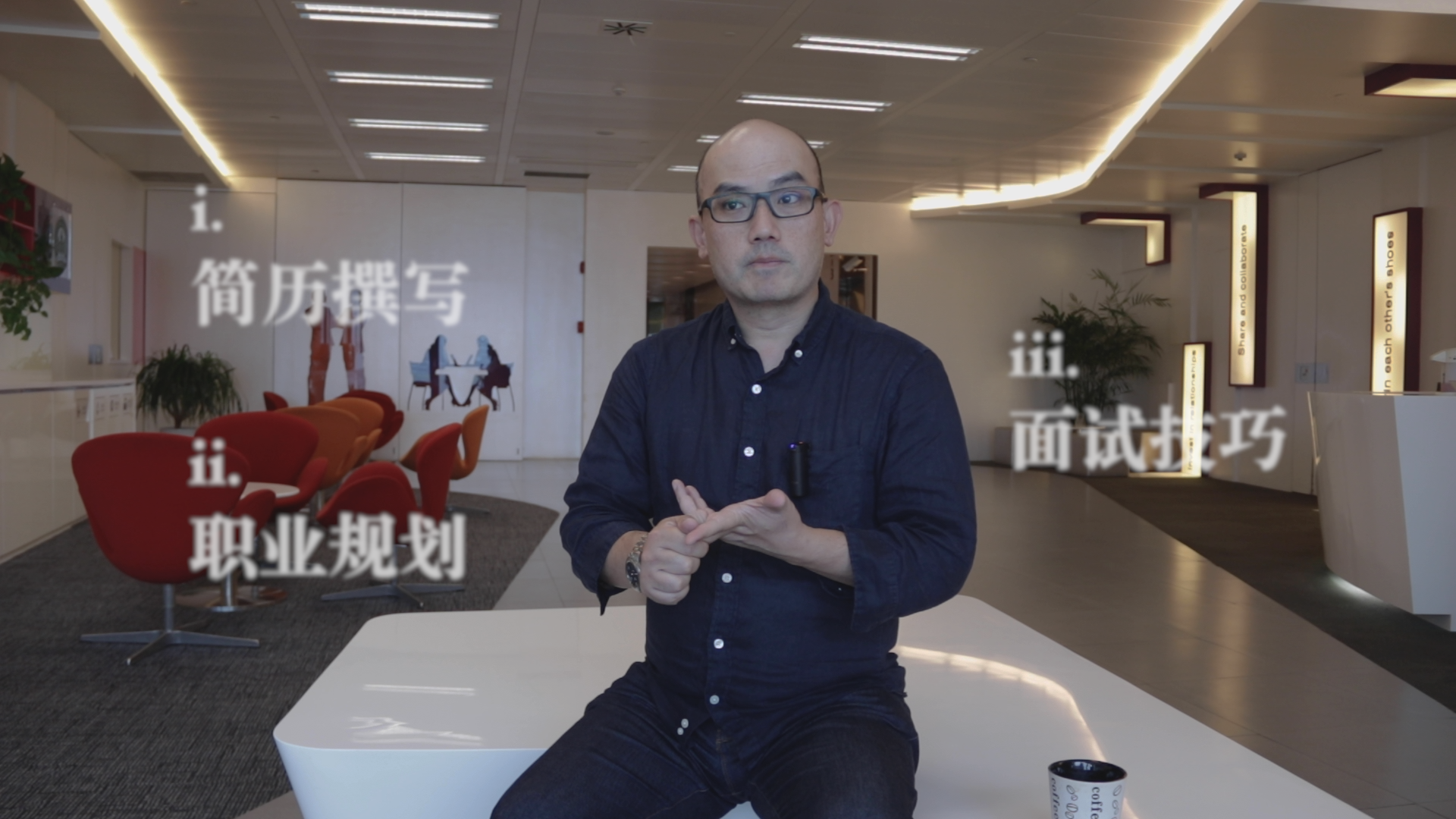
Points for Future Improvement
1)
Hard Limitations: Lack of proper equipment, including rigs and lav mics, impacted overall quality. Though this time it was a matter of circumstance, this experience again reinforces why proper equipment needs to be prioritized from a planning perspective.
2)
Representation & Advocacy: One avenue of recruitment for Anchor is Campus Ambassadors — past students who go on to represent the program at their respective schools. How is their advocacy related to appearance on marketing materials? How can we design their inclusion to encourage their work?